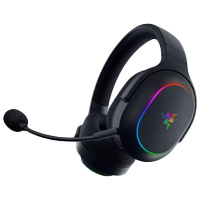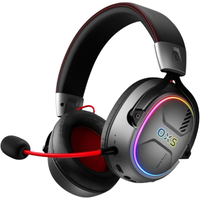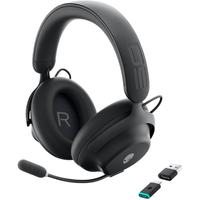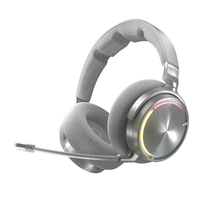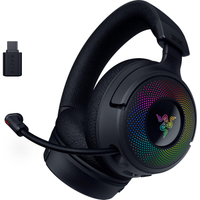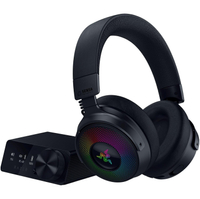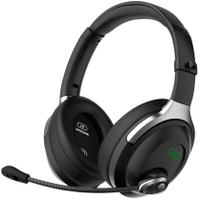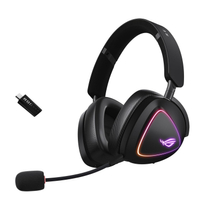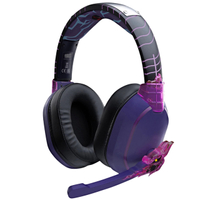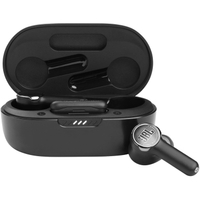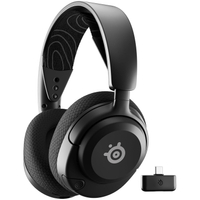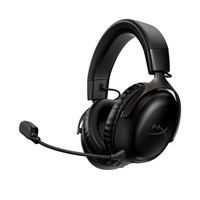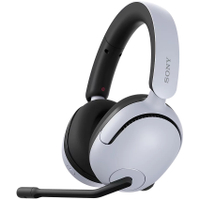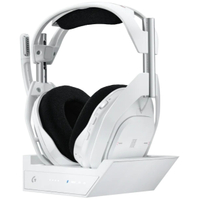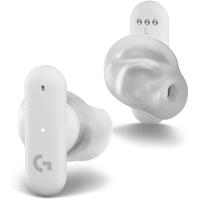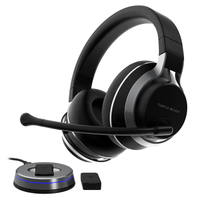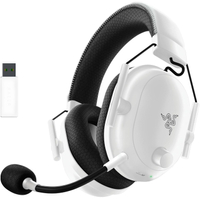Best wireless gaming headsets in 2025: the top cans I'd buy myself
The best wireless gaming headsets allow you to enjoy your games and music tangle-free.
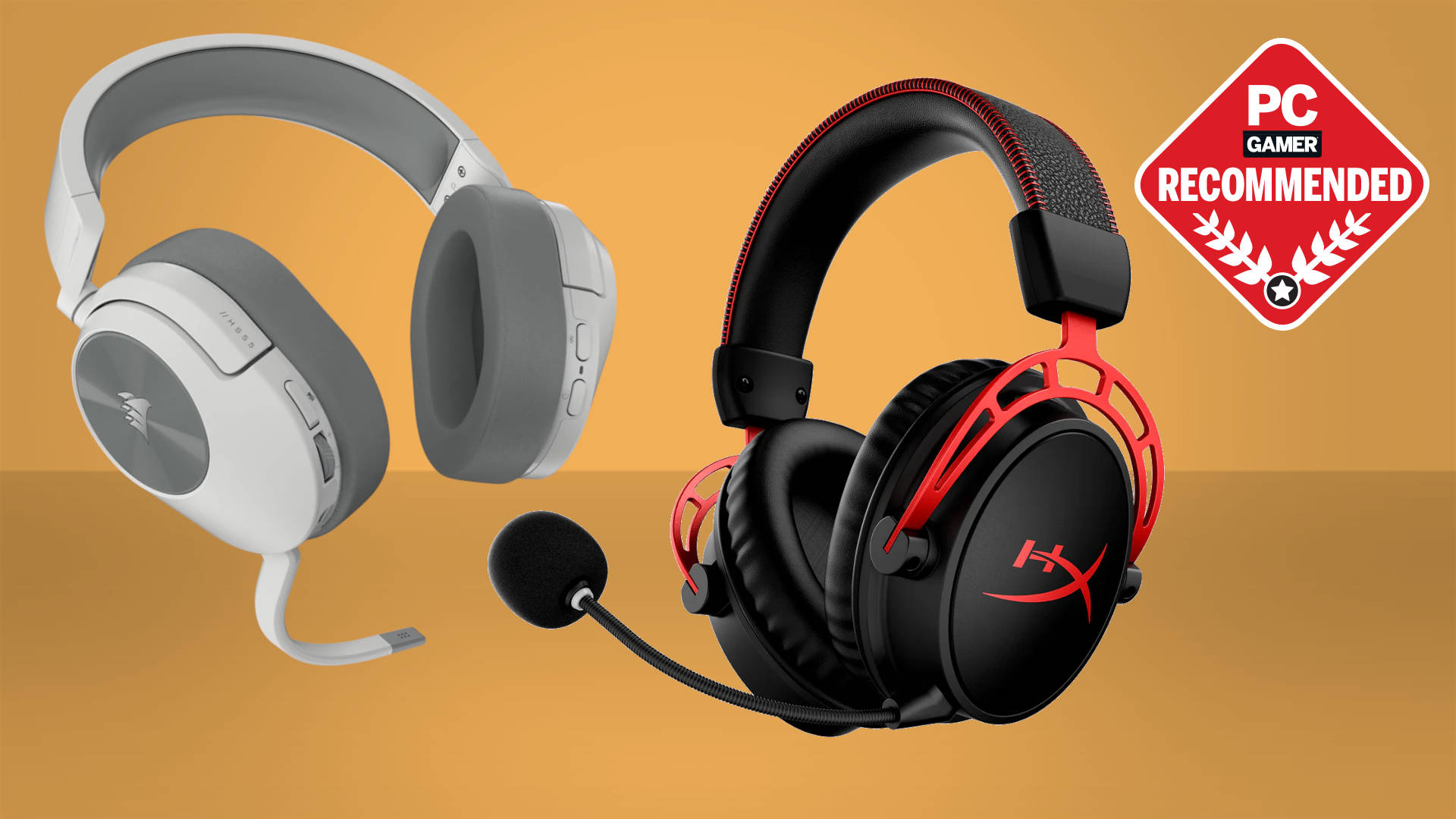
Wireless gaming headsets deliver audio without anchoring you to your desktop, so making a cup of coffee while in the group chat becomes a breeze, and you can run to get the door without ripping your headset out of the jack.
The best wireless gaming headset is the HyperX Cloud Alpha Wireless, with its incredible audio quality, flawless connection and 300-hour battery life. For those looking to save their pennies, the best budget wireless gaming headset is the Corsair HS55, which is lightweight and has great audio for the price.
If you're a serious audiophile, you should check out our picks for the best headphones for gaming, and bargain hunters should read through our best gaming headsets guide, though not all of them provide the cableless freedom the ones below will.

Dave's been a born again audiophile since his time running Techradar's Home Entertainment channel around half a million years ago (give or take) and after his first taste of high-resolution audio, speakers worth tens of thousands of dollars, and $51,000 headphones, he's been all in on what sounds good. Having tested the whole spread of different quality gaming gear he's best placed to say which budget cans still sound good, and which high-end headsets are worth the cash.
Recent updates
Updated 17 March, 2025 to add the Razer Barracuda X Chroma to the 'also tested section,' and ensure all of our other picks still represent the best wireless gaming headsets available.
Updated 06 February, 2025 to add two new headsets that have been reviewed to the 'also tested' section and to check over all information.
The quick list
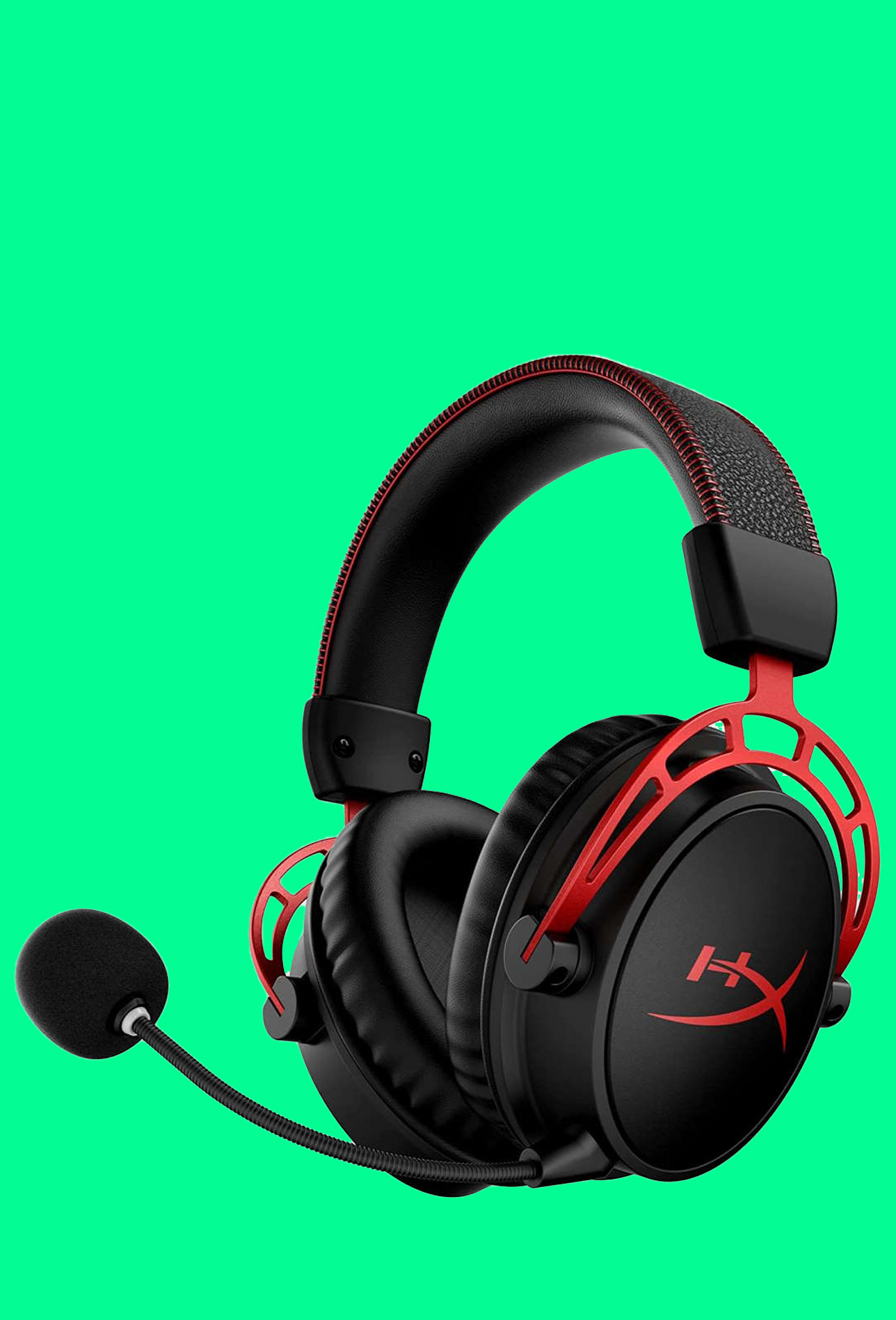
The best overall
The Cloud Alpha Wireless is a wireless wonder for PC gaming. It has superb sound, a clear mic, and DTS surround sound. It’s also light and comfy, with a whopping 300-hour battery life. It’s the best wireless headset we’ve tested so far.
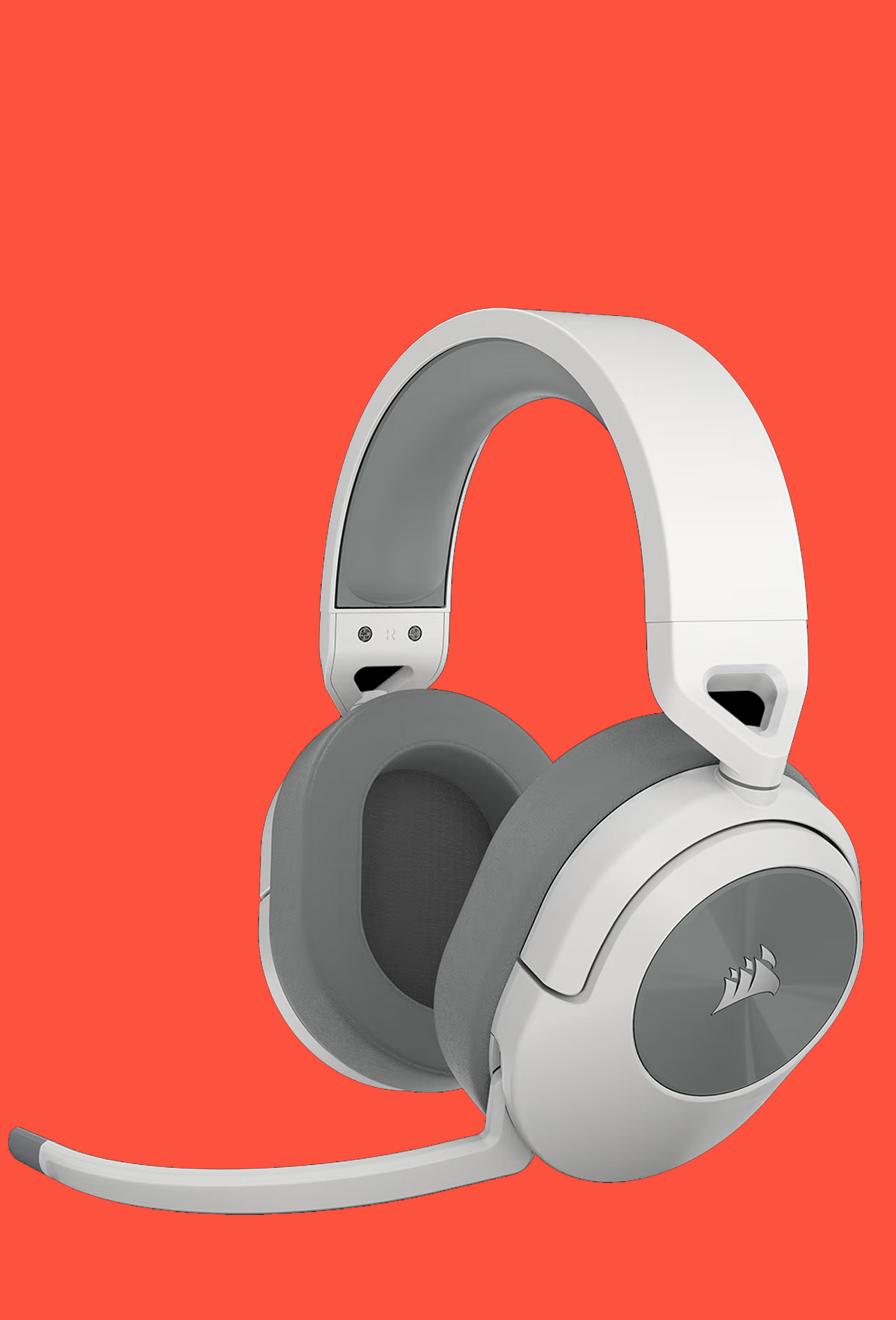
The best budget
The wire-free version of our favorite budget gaming headset, it seems only fair to mention this more value-focused wireless headset as a good option to look into.
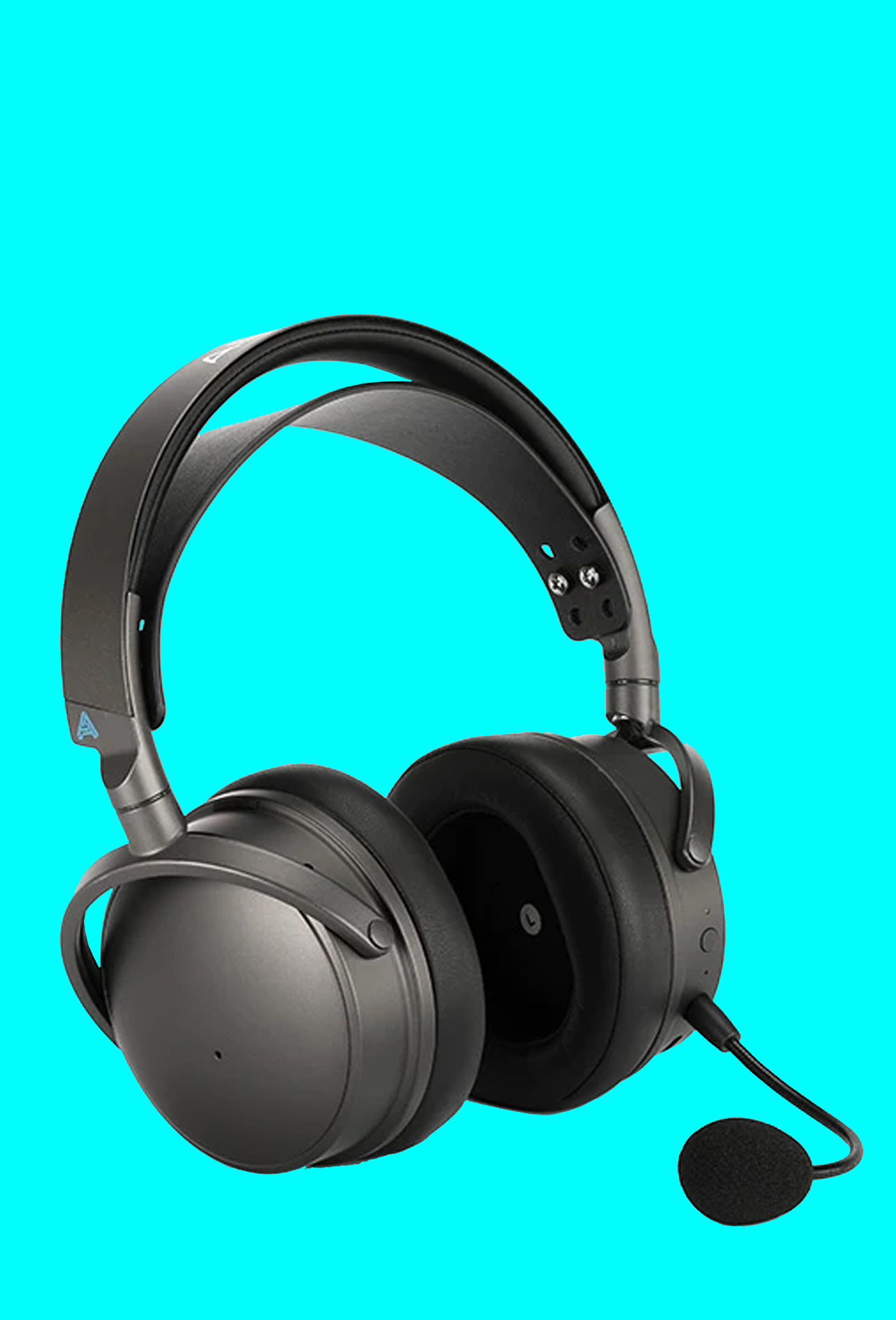
The best high-end
Audiophiles will love the Maxwell's planar magnetic drivers. It is on the expensive side, but when it delivers gorgeous natural sound, great battery life, and a good mic, there's little to dislike here.
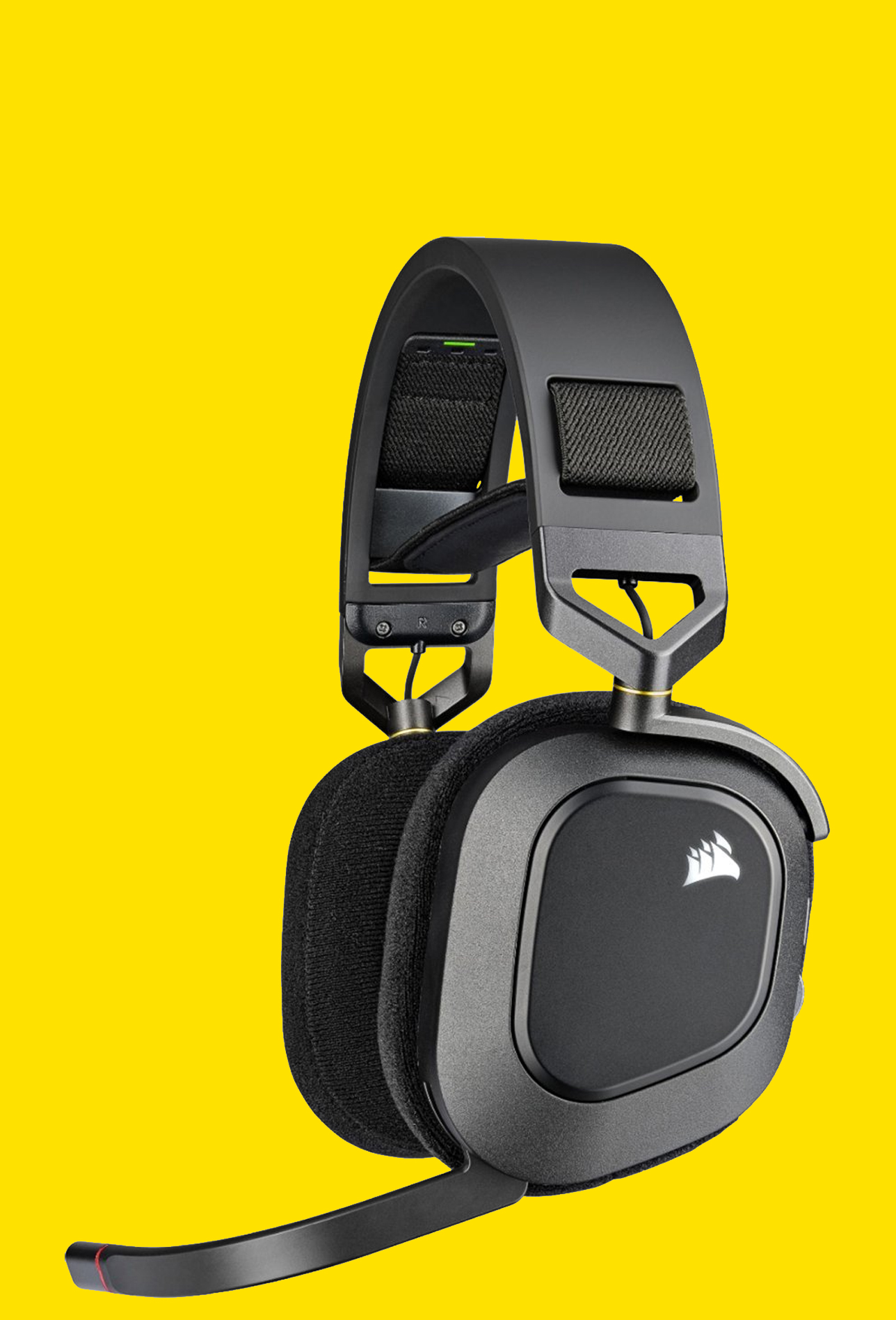
The best spatial audio
With a great floating headband design, the Corsair HS80 RGB is a super comfy wireless headset. Pair that with excellent Hi-Res Audio + Dolby Atmos and a fantastic microphone, and you're onto a winner.
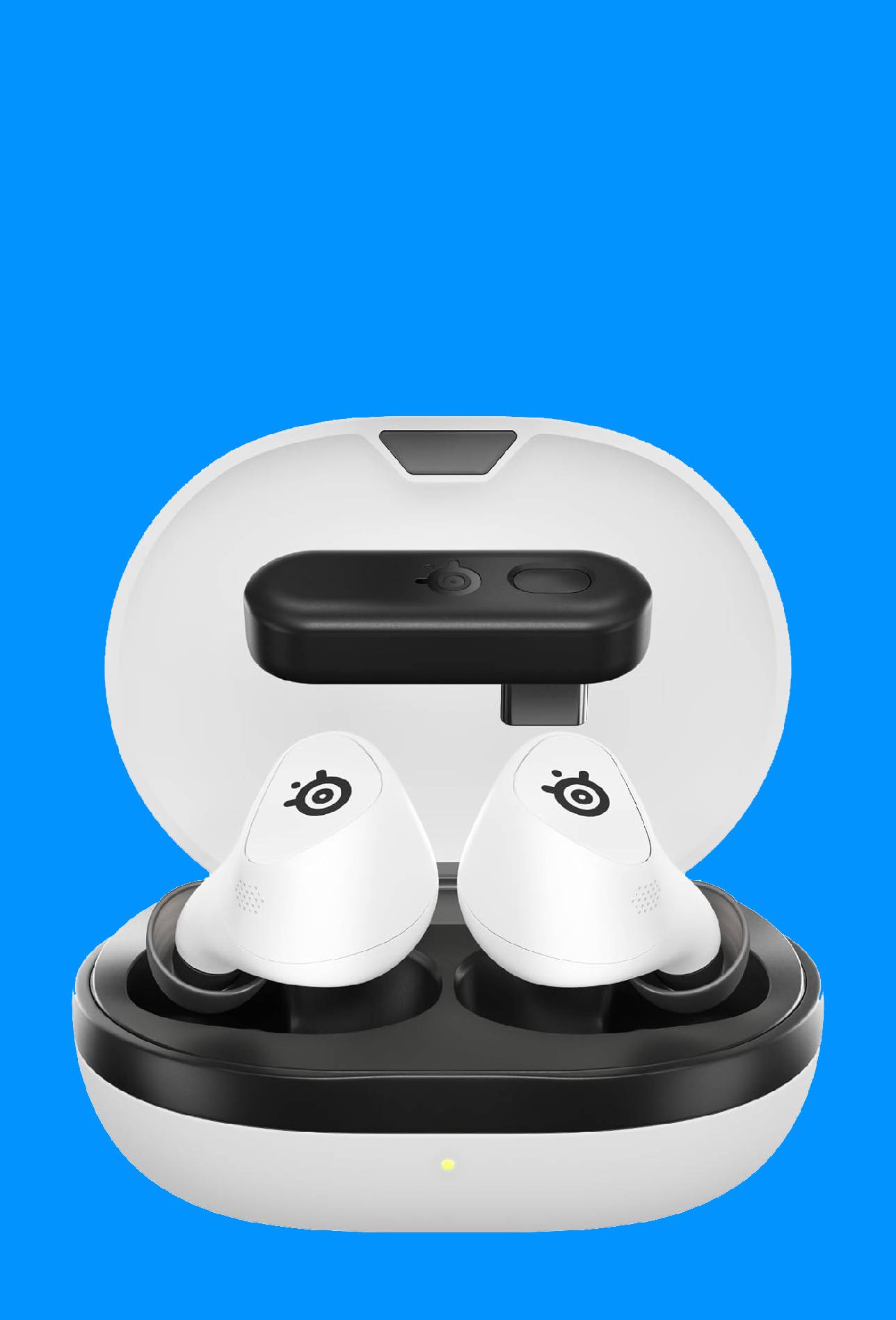
The best earbuds
The SteelSeries Arctis GameBuds not only have fantastic audio quality and battery life but also come with dual connection, noise canceling, and transparency mode. And, of course, they're less bulky than a headset.
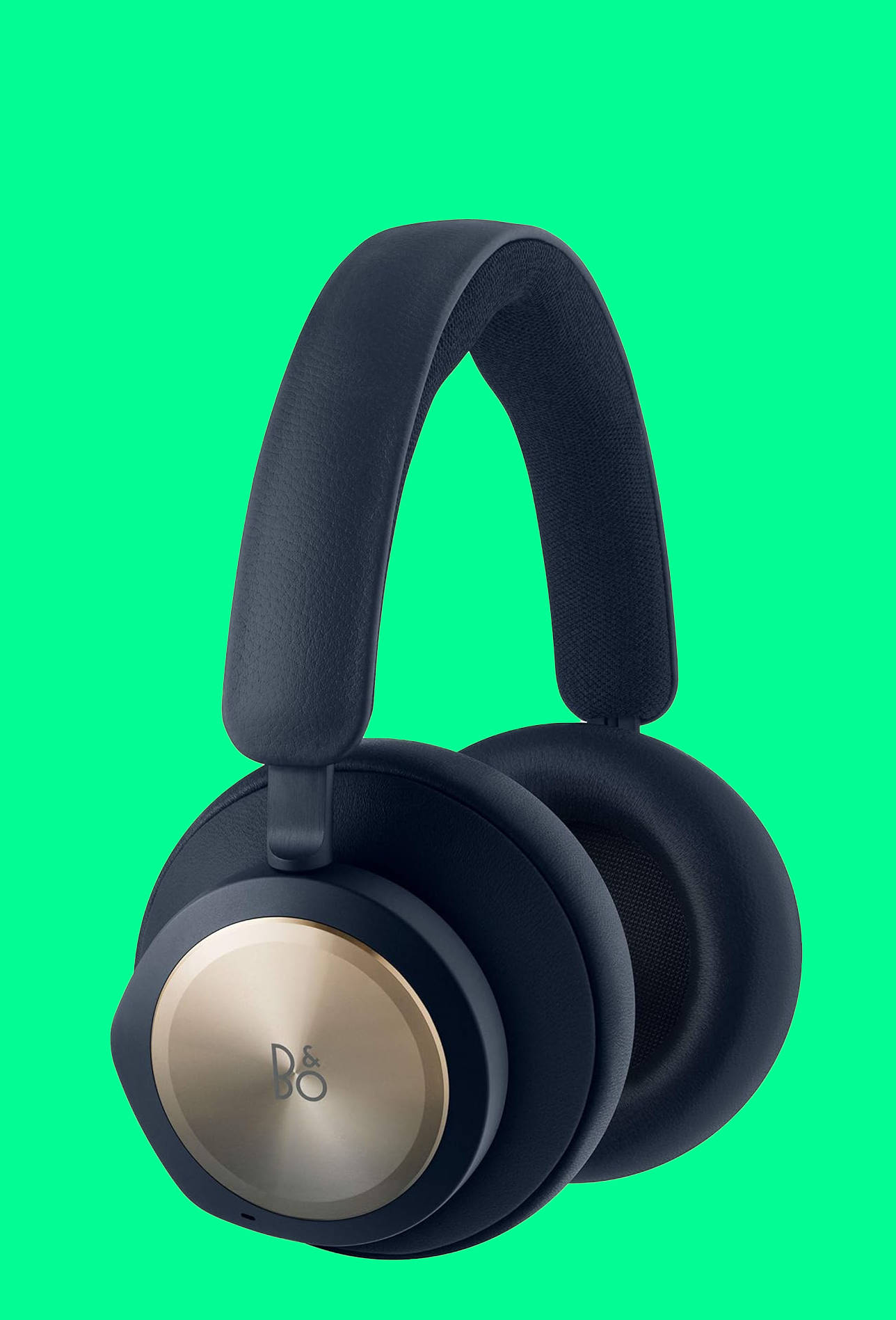
The best Bluetooth
Bang & Olufsen's Beoplay Portal headset is as feature-rich and high-quality as you'd expect for the price, and it's equally at home hooked up to a PC, console, phone, or TV.
⬇️ Click to load more of the best gaming wireless headsets ⬇️
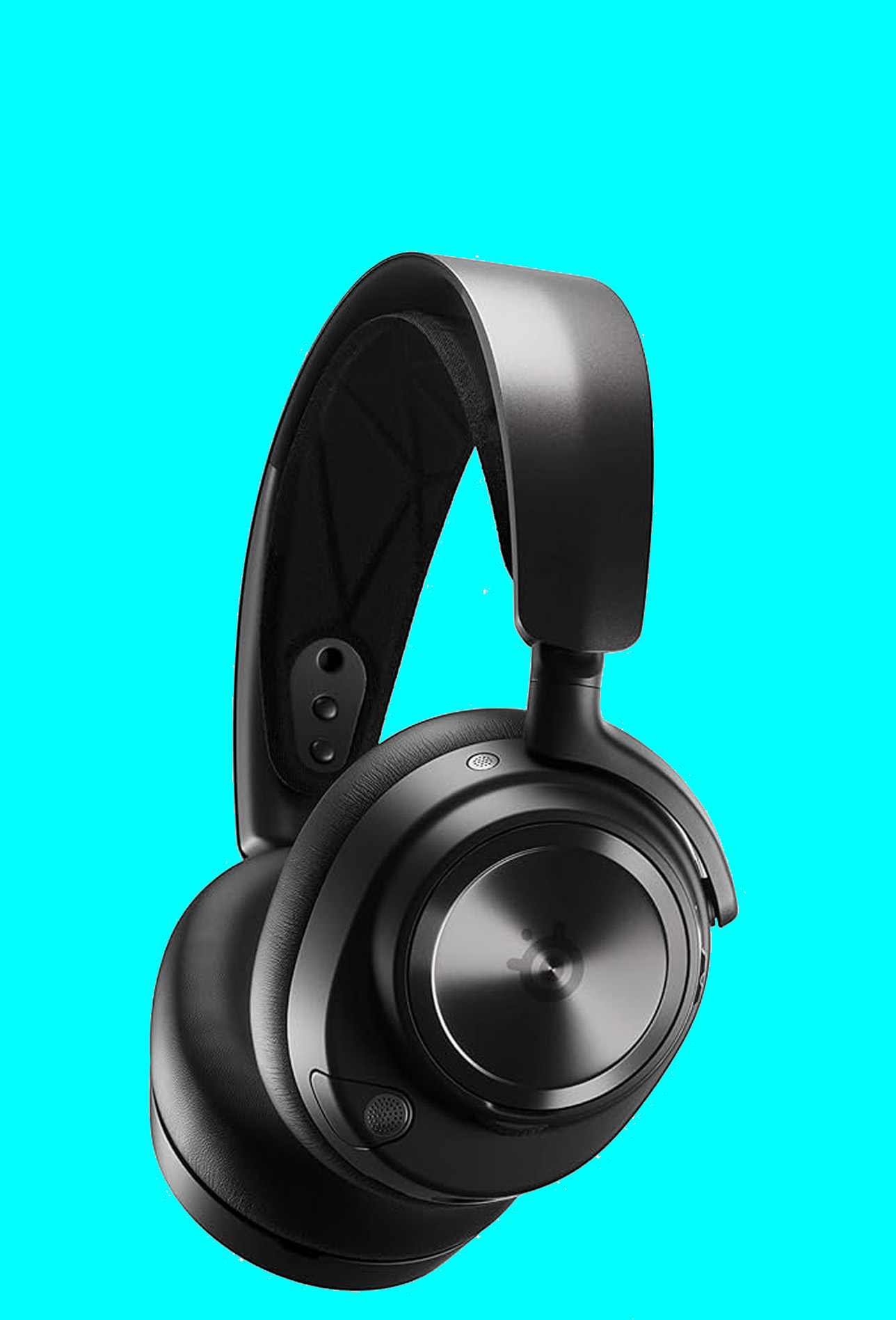
The best battery life
Thanks to its hot-swappable, fast-charging battery packs, the SteelSeries Arctis Nova Pro headset will effectively run forever. And given how comfy they are and how sweet they sound, you'll want to use them for hours on end, too.
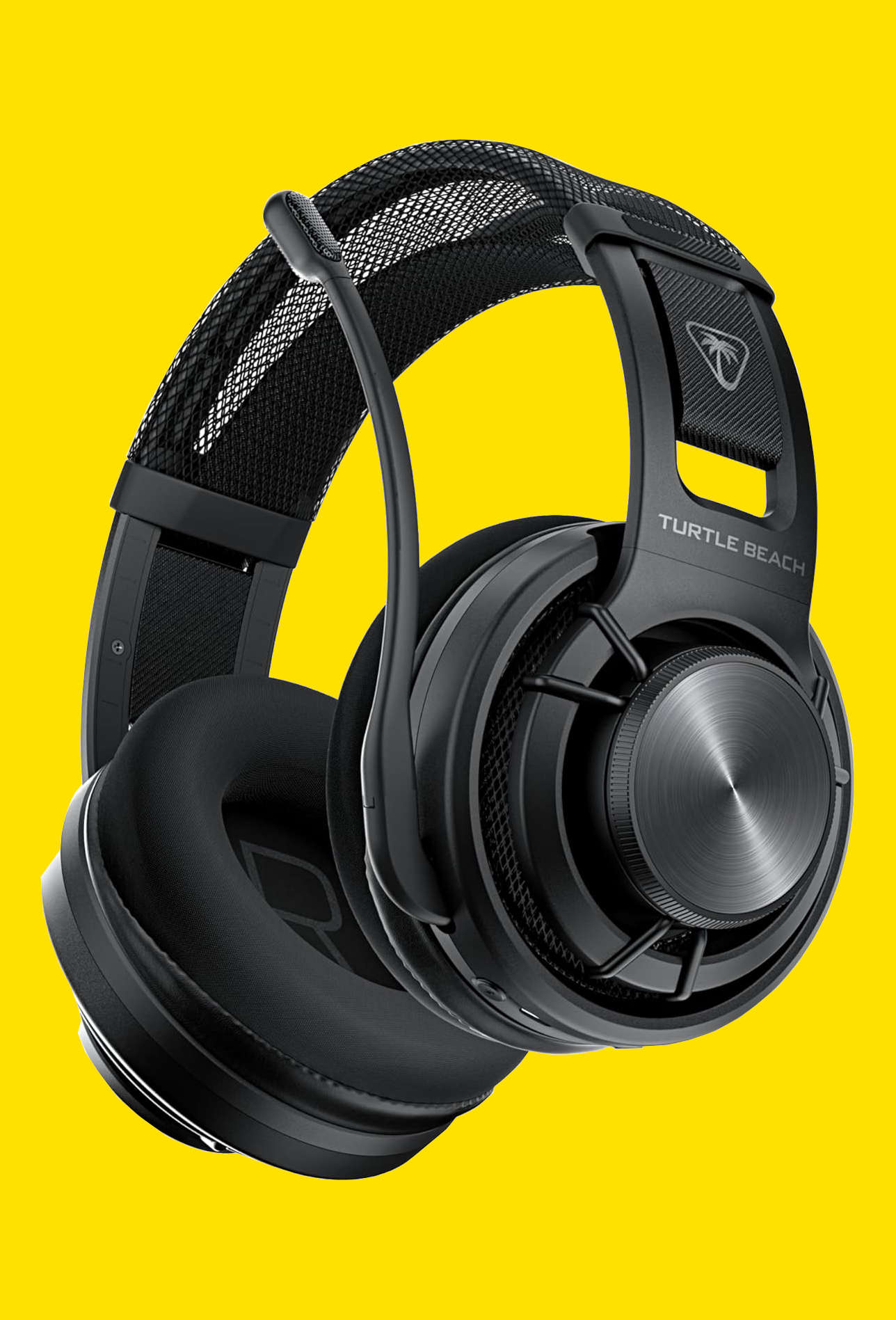
The best open-back
Yes, it's niche, but if you want the most expansive soundscape from your audio you want an open-back headset. The Atlas Air sounds great, feels good on the head, and will deliver that audio for around 50 hours, too.
Best wireless gaming headset overall
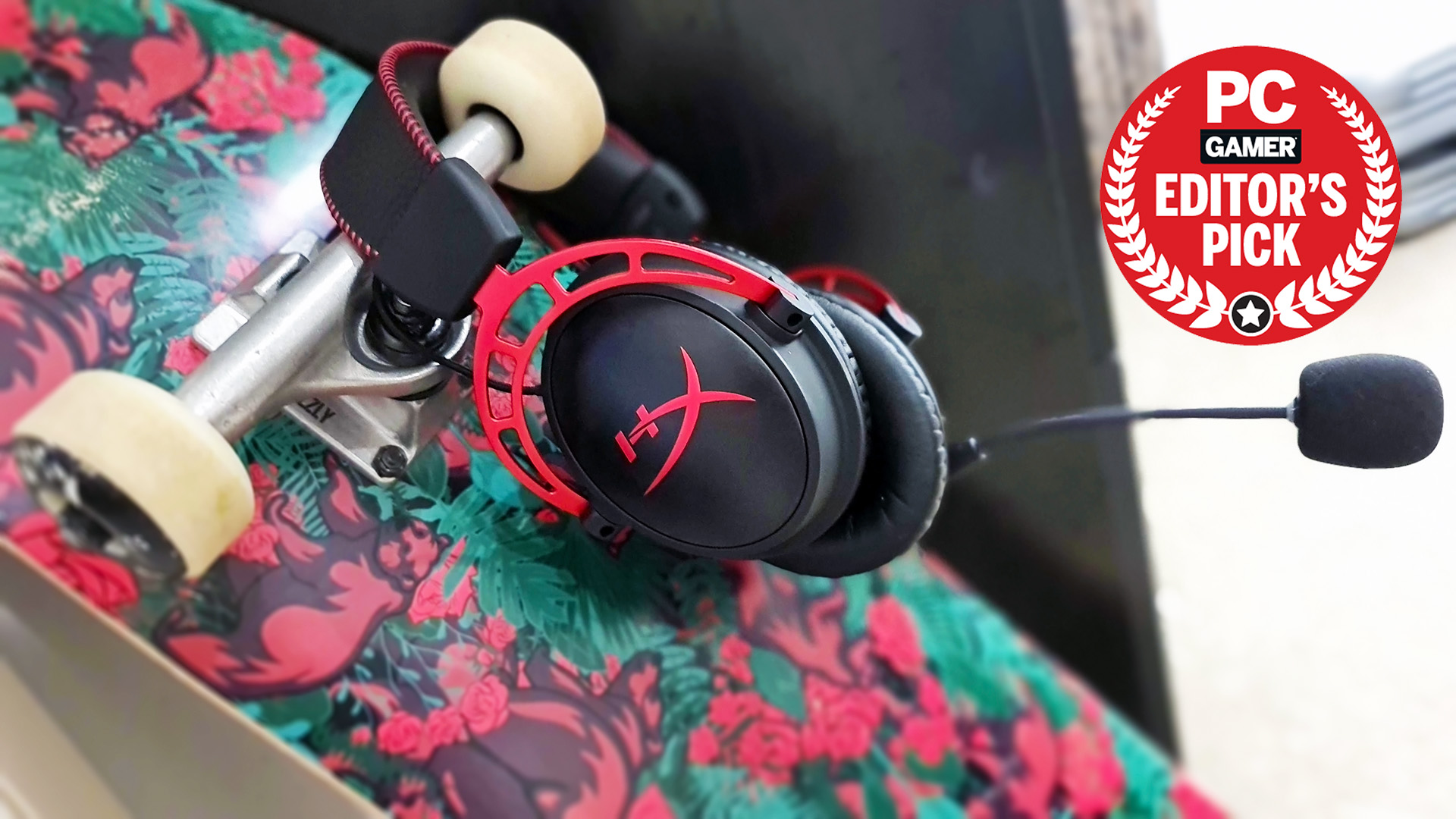
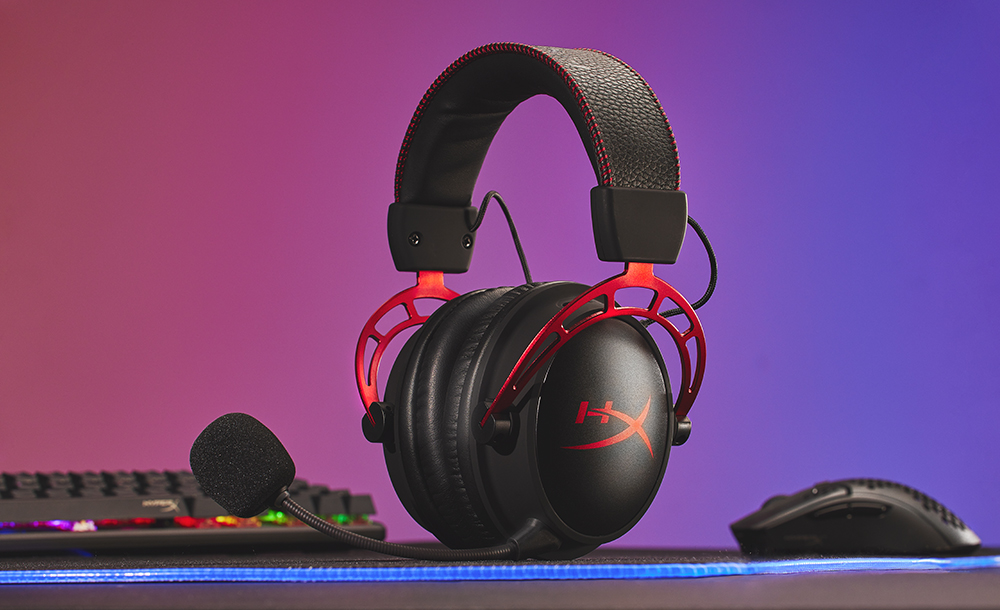
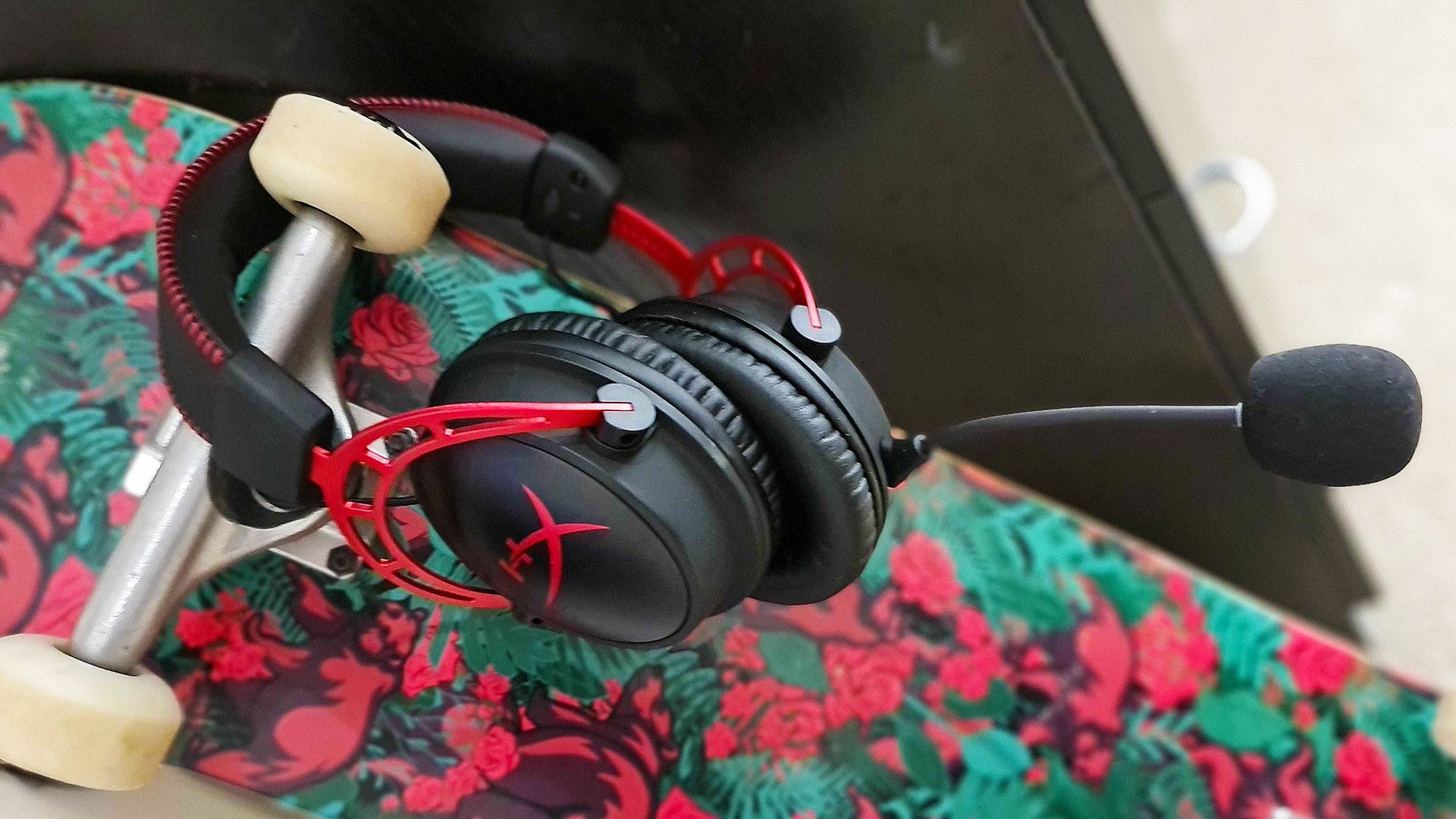
Specifications
Reasons to buy
Reasons to avoid
✅ You want the very best wireless gaming experience: Peerless battery life, superb audio quality, and day-long comfort all make the Cloud Alpha unmatched in this segment.
❌ You need a high-quality microphone: Compared to the rest of the headset, the Cloud Alpha's mic is merely okay and isn't suited for streaming at a professional level.
Yes, we still think the HyperX Cloud Alpha Wireless is the best wireless gaming headset, even after all this time. HyperX struck gold with its original Cloud Alpha headsets, with the wired HyperX Cloud Alpha still the best gaming headset around, too.
The main draw to the Cloud Alpha Wireless is its ginormous battery life. With up to a whopping 300 hours, you'll struggle to drain this thing. Trust me, we've tried and failed to get this thing down to zero. It's just too much hassle to bother.
Its peak volume isn't great, but it should be loud enough for most people, and apart from this one minor gripe, we have nothing but praise for the Cloud Alpha Wireless. Its positional sound is great and in-game sounds are clear, so footsteps should be clearly audible and enemies readily placeable. Music sounds similarly fantastic, too, with highs, mids, and lows coming through nice and crisp.
Finally, on the design front, you're getting the standard black-and-red HyperX affair. You're also getting a nice soft headband and comfy earcups which, when combined with the cable-free nature of this version of the headset, make for some truly relaxing sessions.
This headset covers pretty much all bases and I think almost any gamer would be happy with it. Well worth picking up, in my opinion.
Read our full HyperX Cloud Alpha Wireless review.
Best budget wireless gaming headset
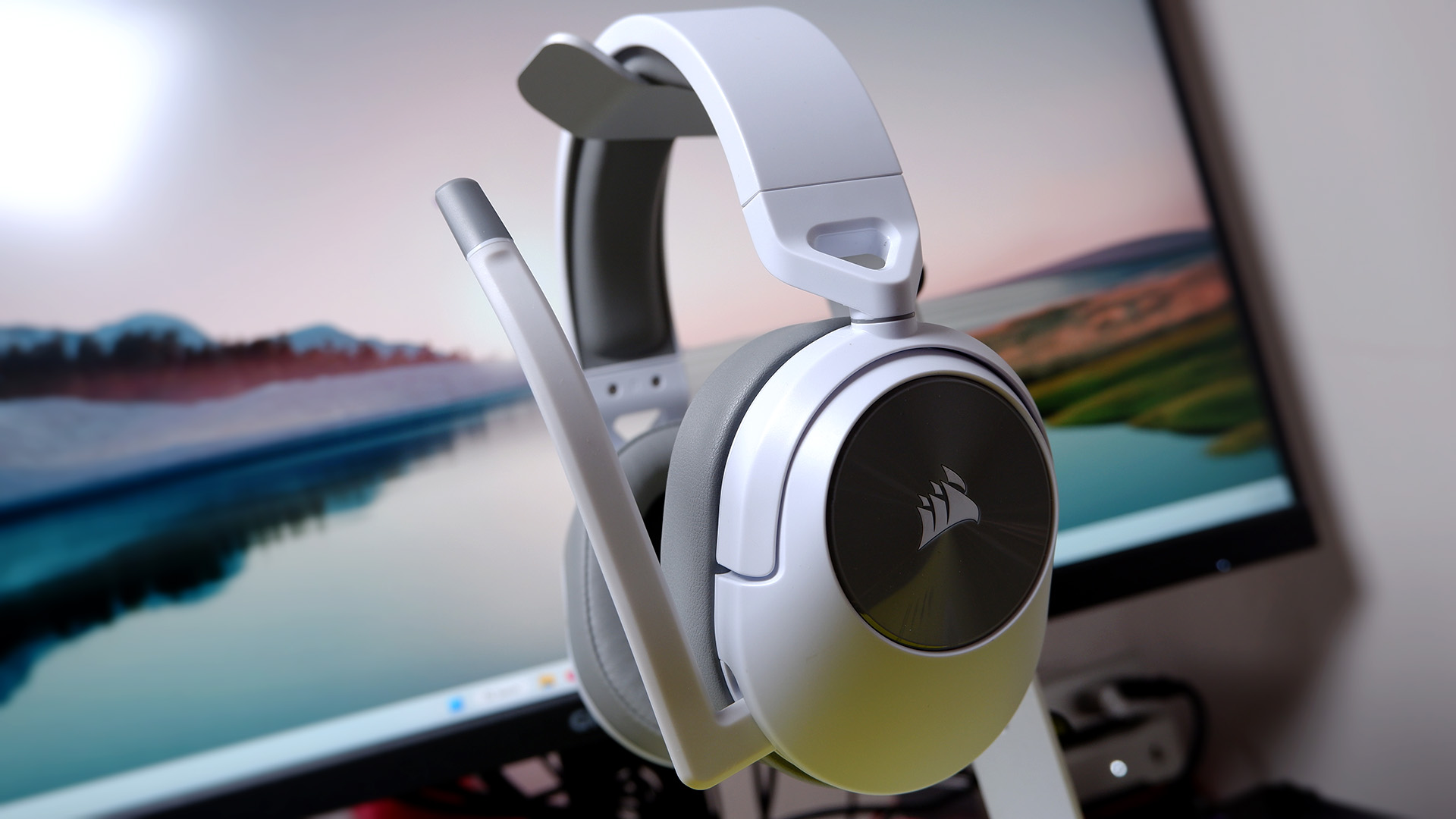
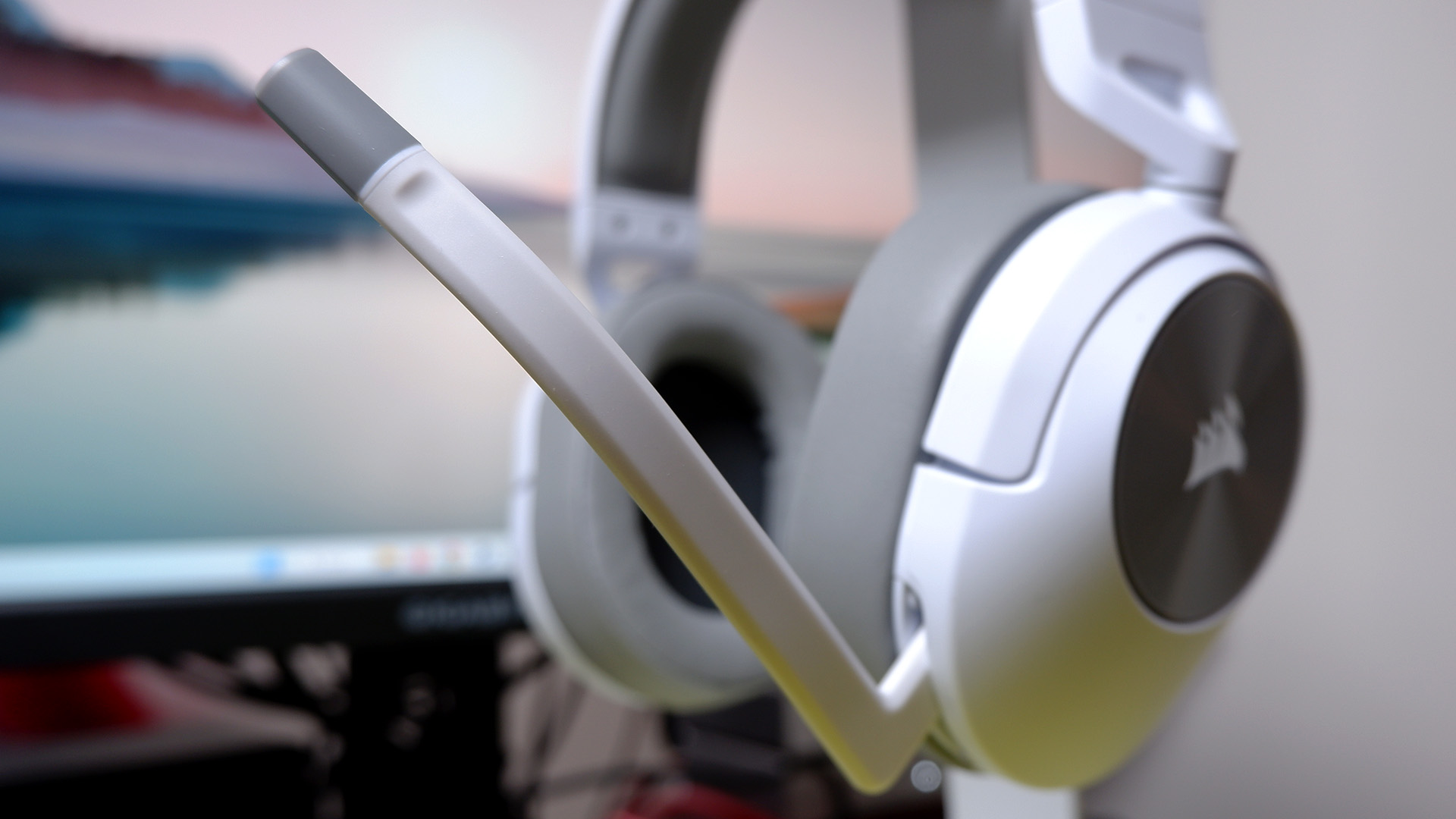
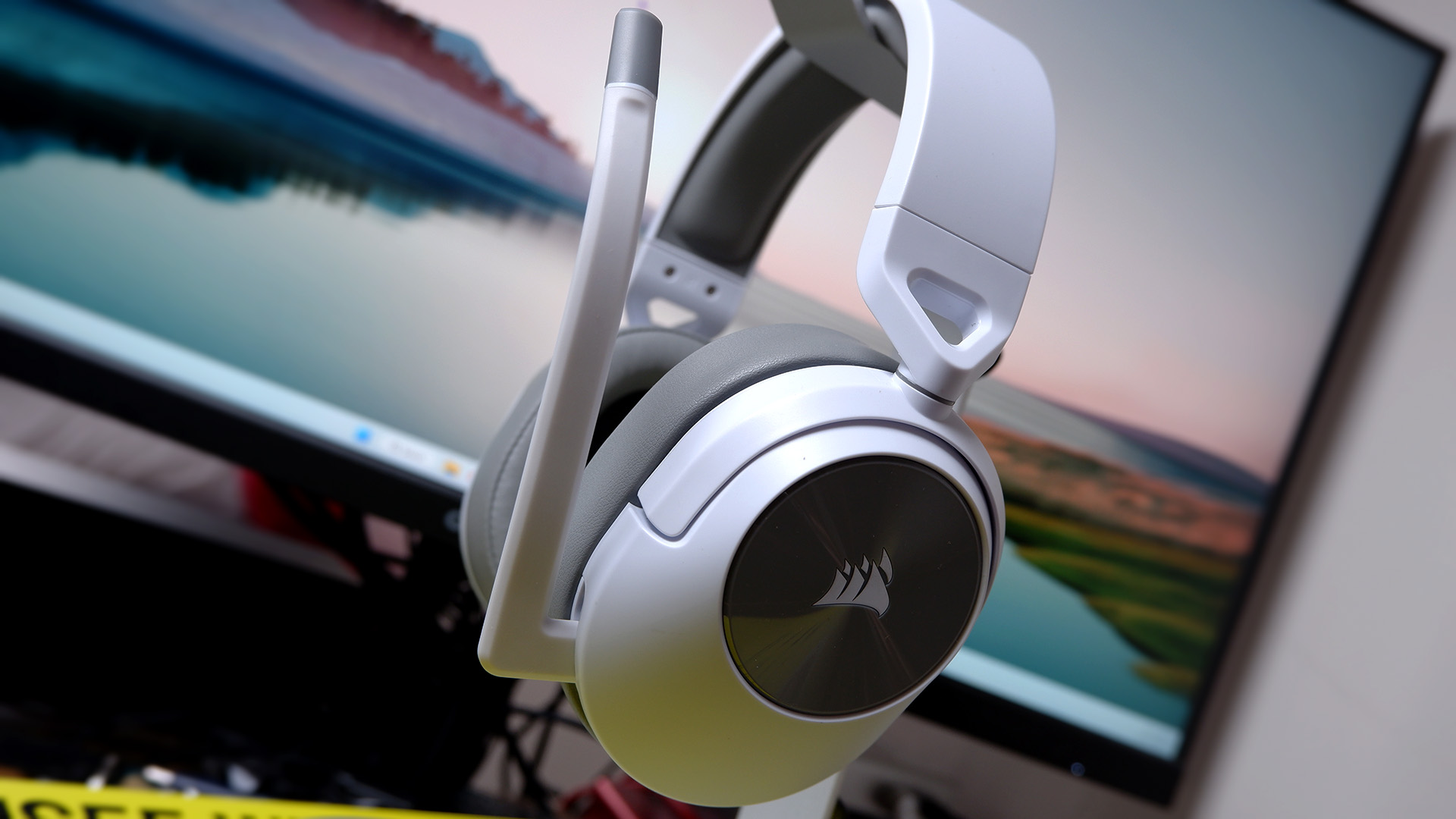
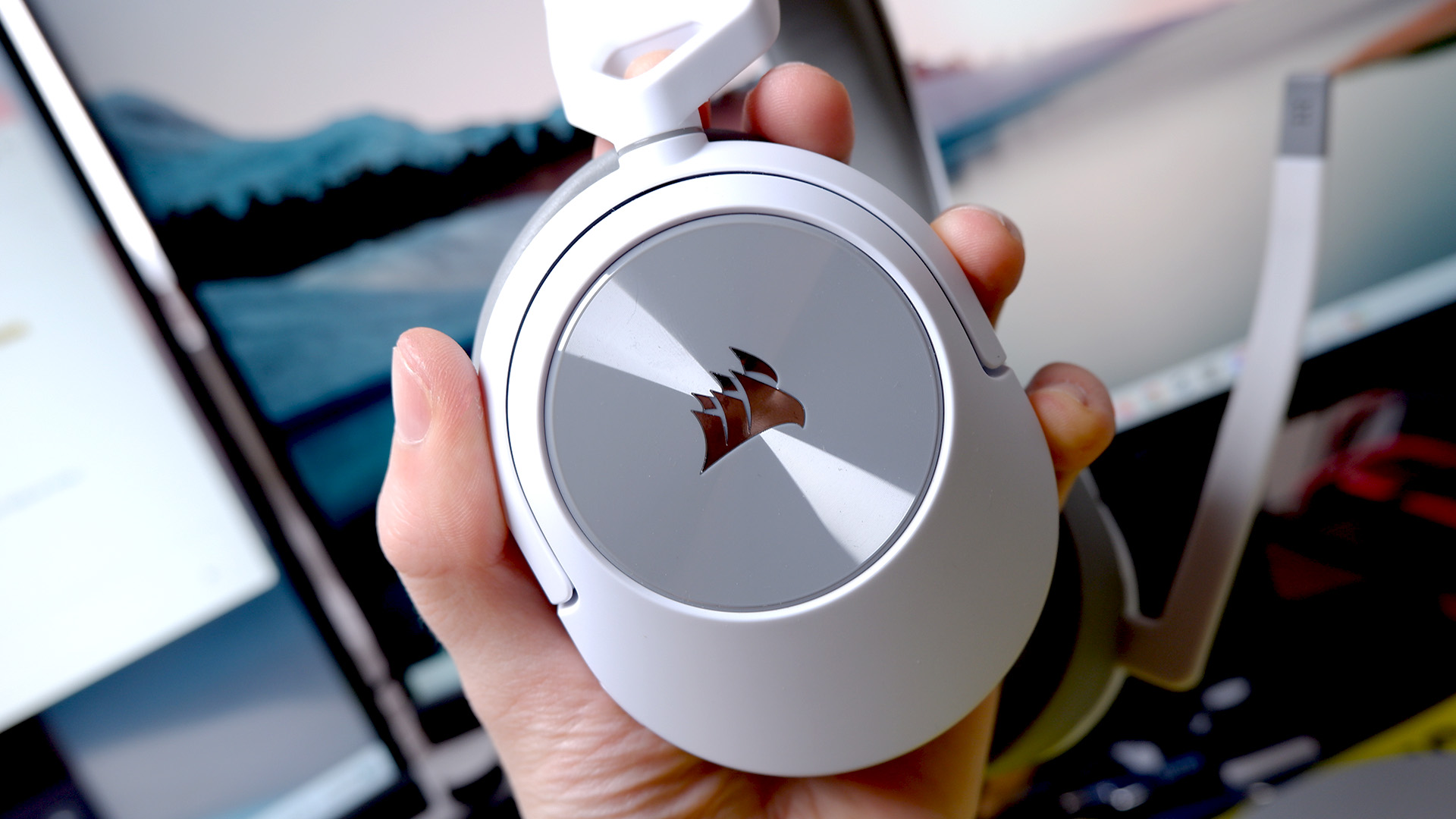
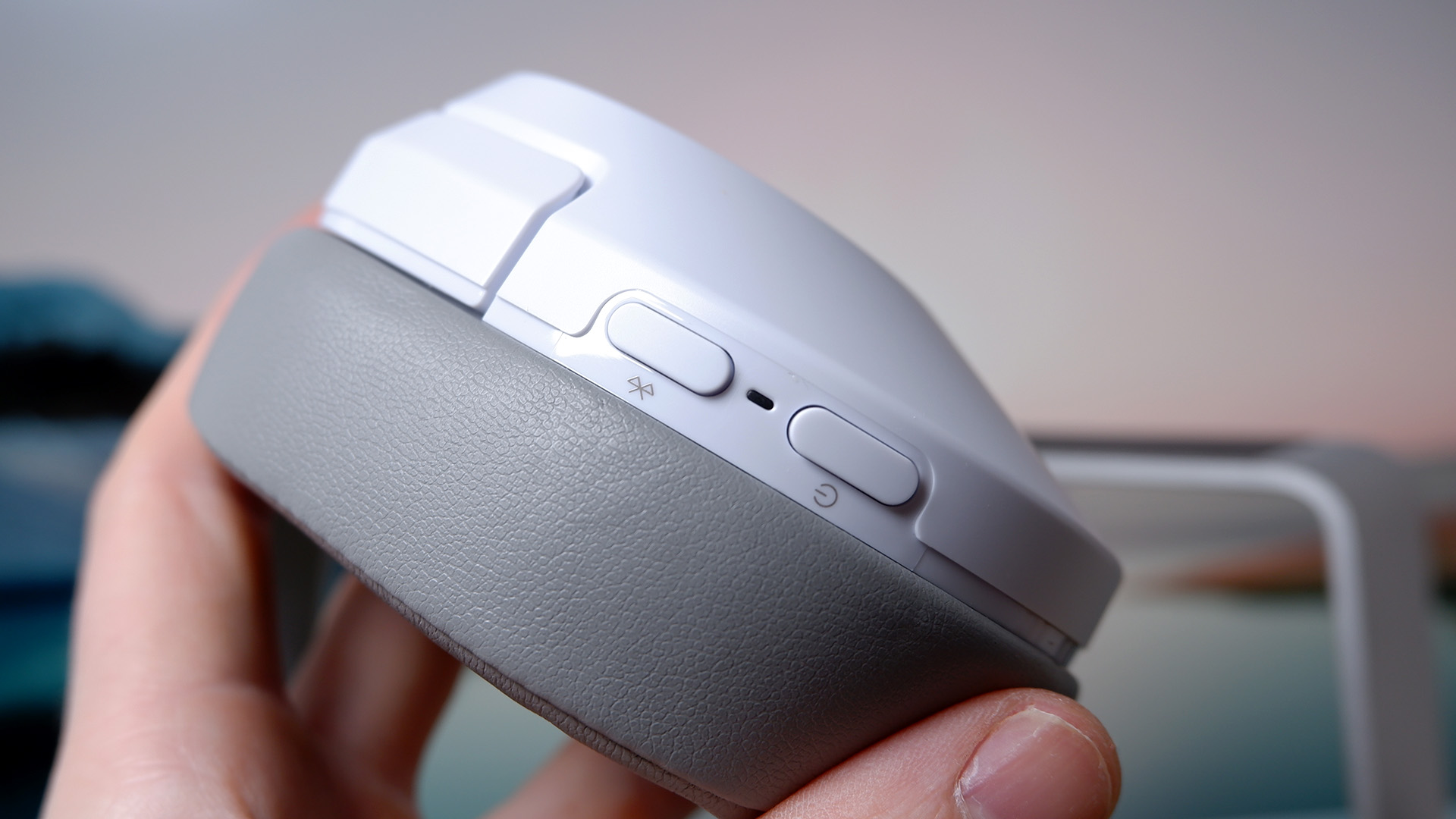
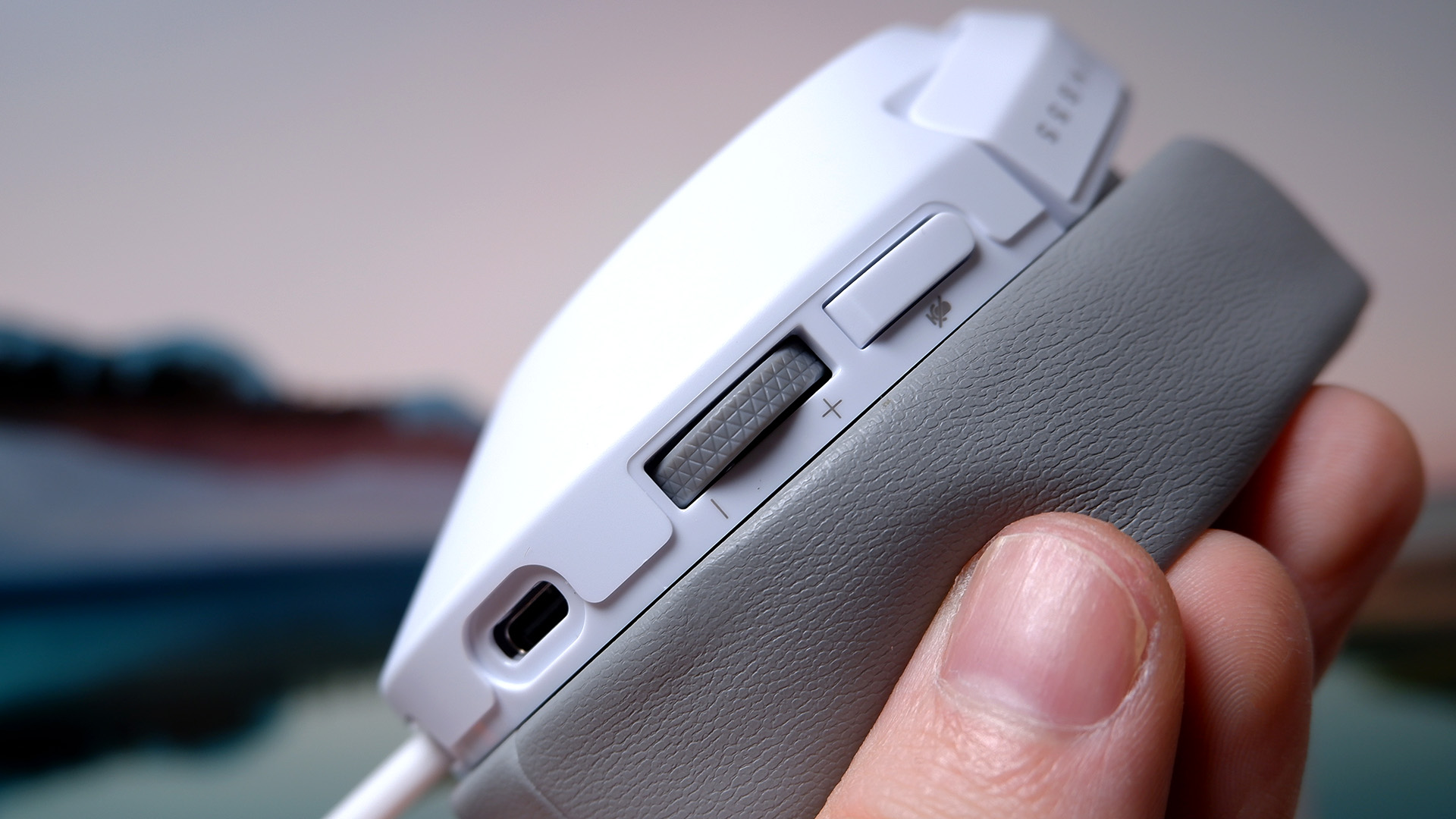
Specifications
Reasons to buy
Reasons to avoid
✅ You want wallet-friendly wireless: Cheaper headsets are available but they're usually wired. You're getting a pretty decent headset for the money, all things considered.
❌ You need a high-quality microphone: A common theme with gaming headsets is a mediocre mic, yet the wired version of the HS55 is really good. Shame this one isn't.
The best budget wireless gaming headset is the Corsair HS55 Wireless, a cordless version of our pick for the best budget gaming headset. While the wireless HS55's mic is, unfortunately, worse than the wired version's, it's still a cracking choice for those on a budget looking for wireless cans.
Though you can't expect top-tier audio quality with budget headphones or headsets, the HS55 wireless delivers audio that's more than respectable for the price. We're not talking stand-out clarity—noisy in-game environments can become a little muddy, and middling frequencies can sometimes blend together—but there's plenty of clarity for everyday gaming and music to pump out of these 50mm drivers, and nothing sounds unnatural.
It has some nice extra features that you might want out of a gaming headset, too, such as a flip-to-mute microphone and a pretty impressive wireless range that bore out in practice. In testing, Jacob also found the HS55 wireless to be comfy to use thanks to its light weight which, at 274 g, is somehow actually lighter than the wired version.
While the HS55 Wireless's audio quality and mic quality aren't anything to write home about, you can do a lot worse for the price in the wireless market. That's the key, really: If you want something both budget and wireless, you have to make some sacrifices. And this headset sacrifices the least for the biggest saving, as far as I can tell.
Read our full Corsair HS55 Wireless review.
Best high-end wireless gaming headset
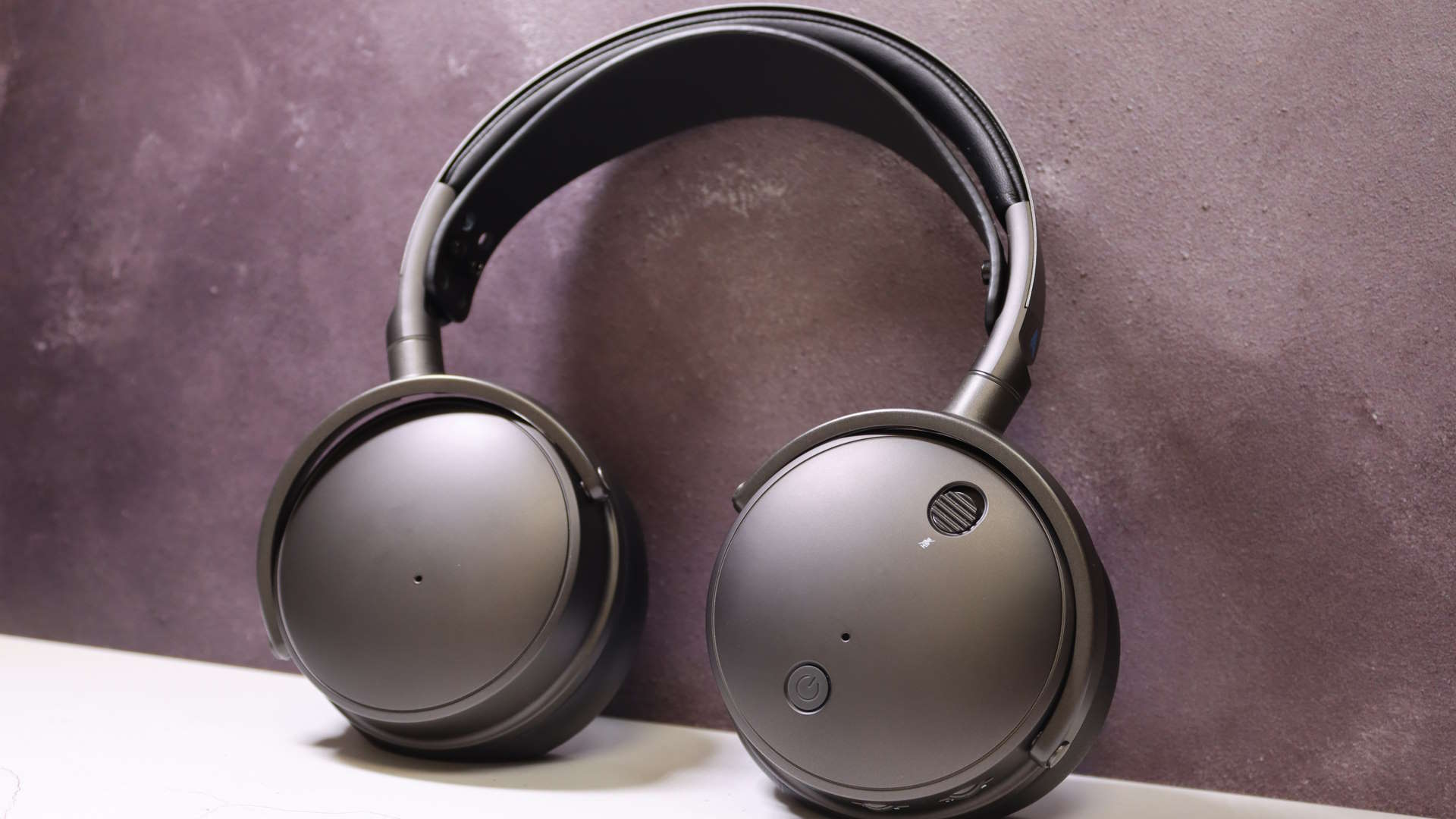
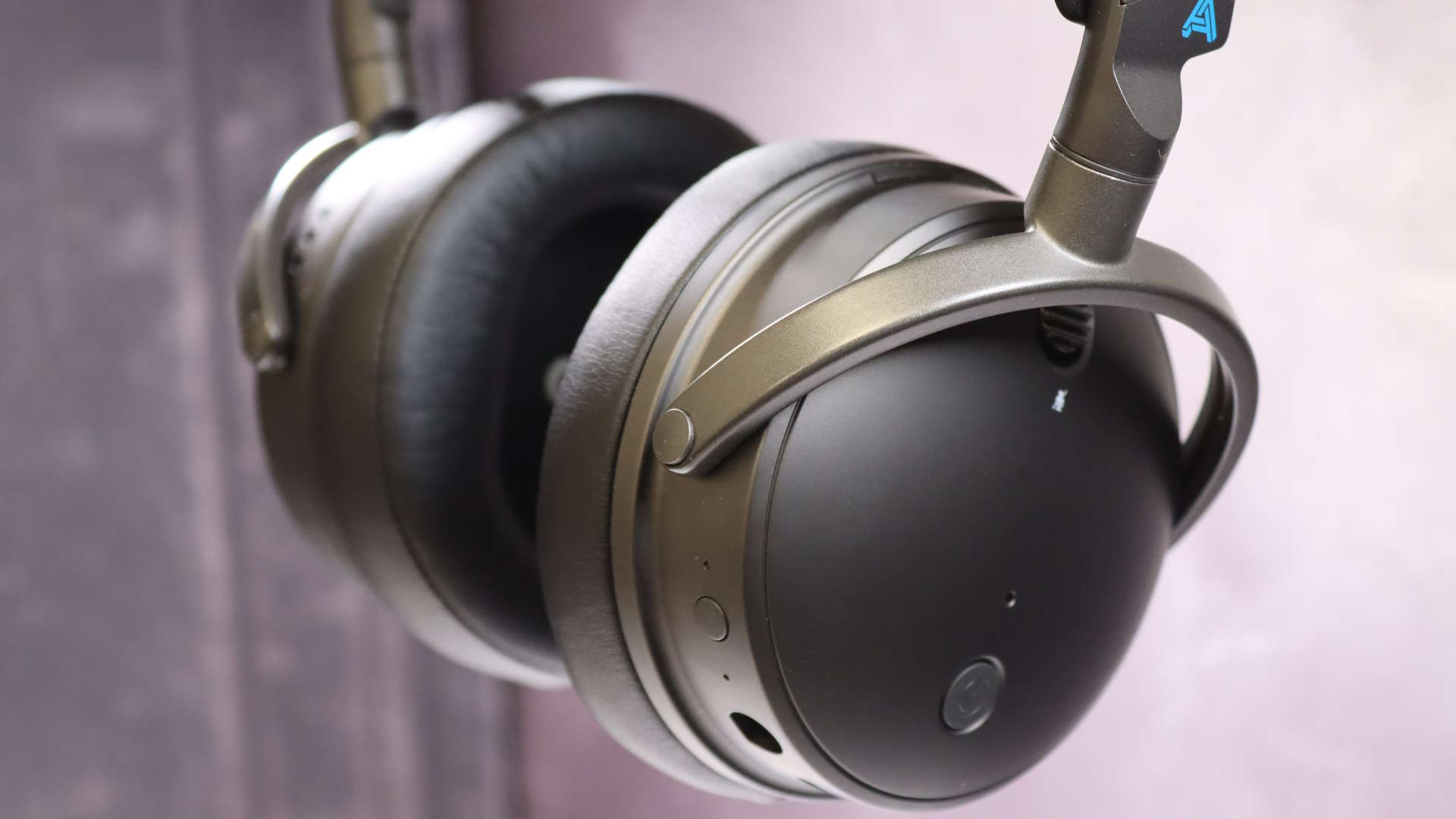
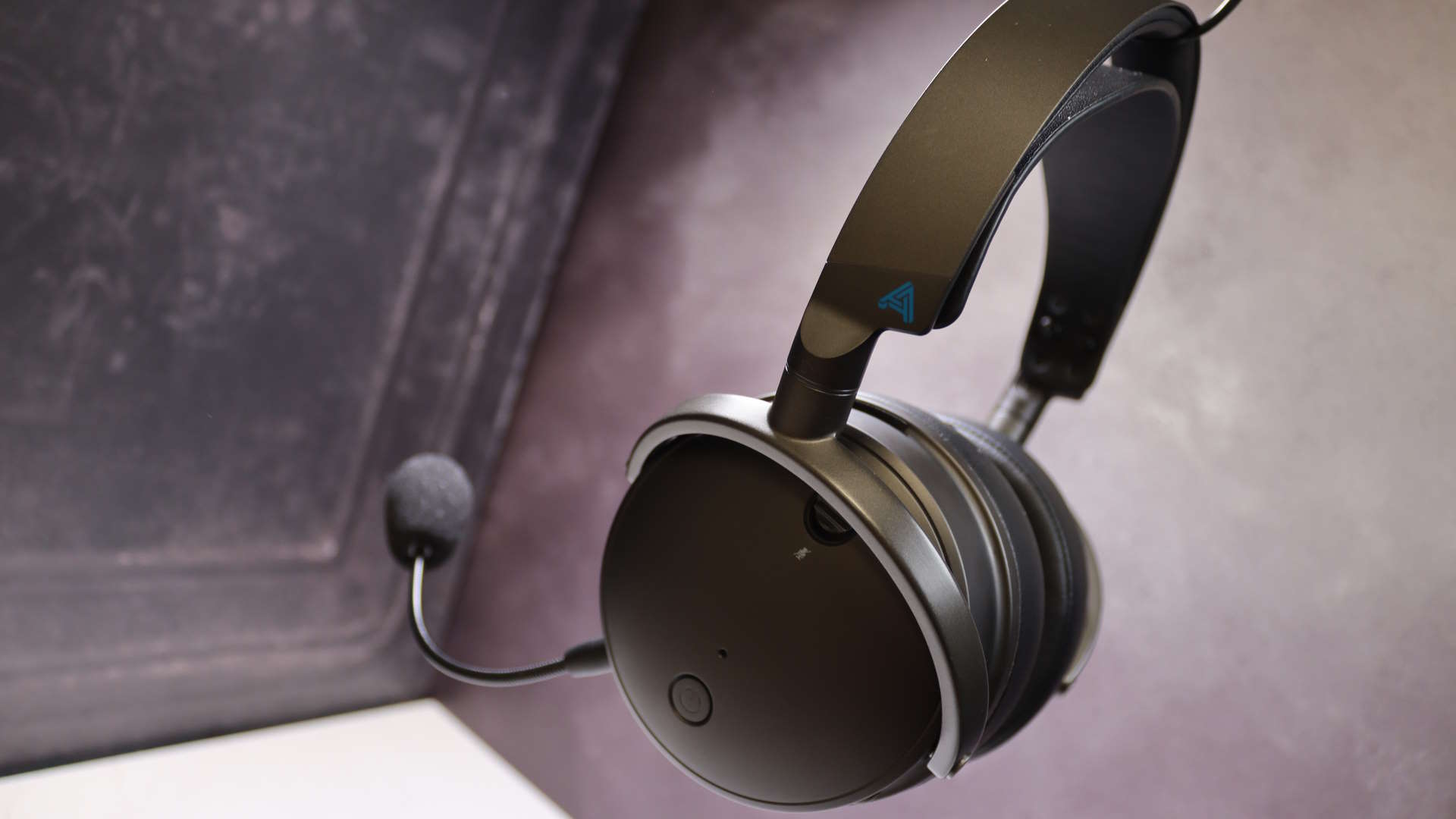
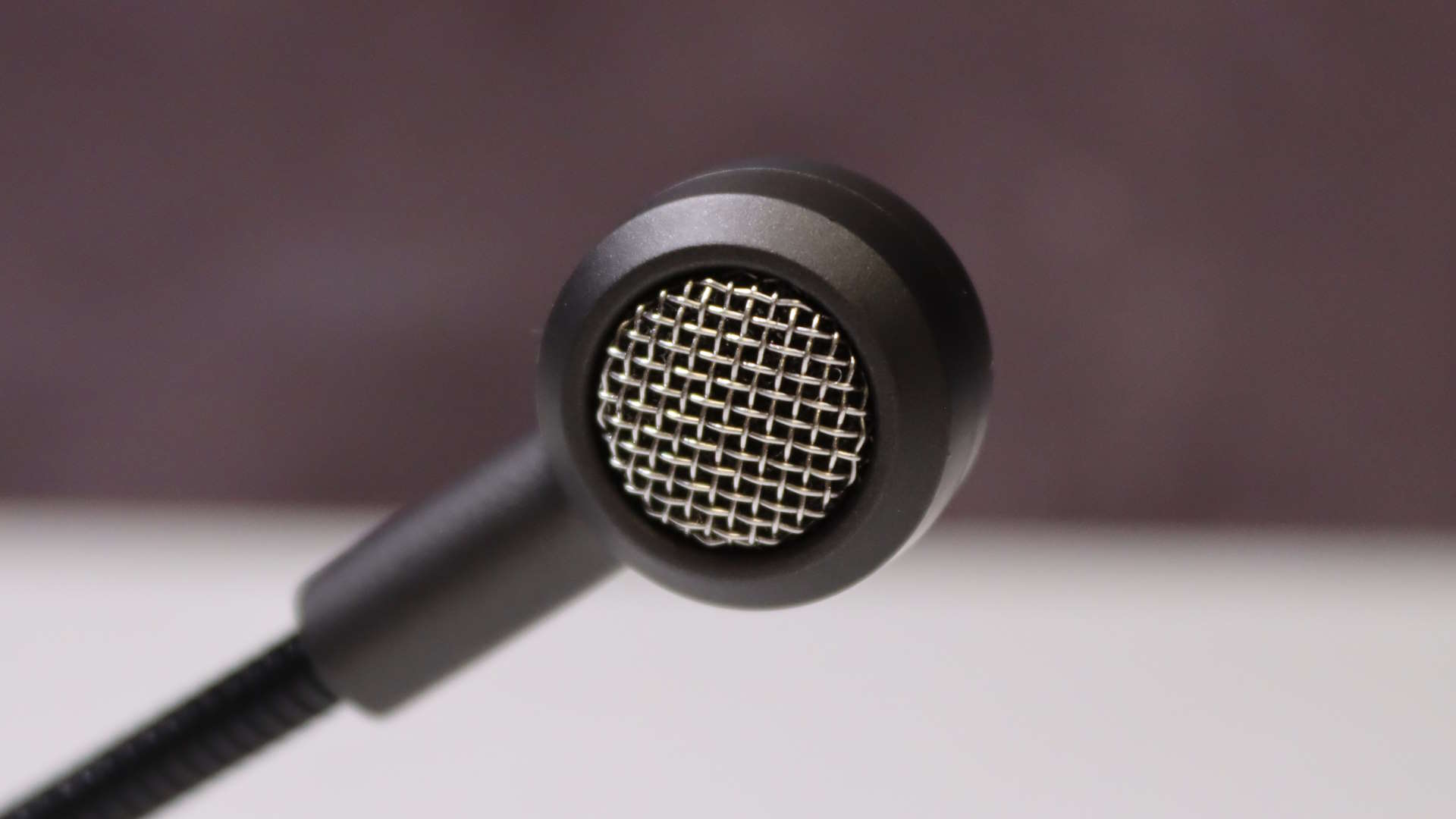
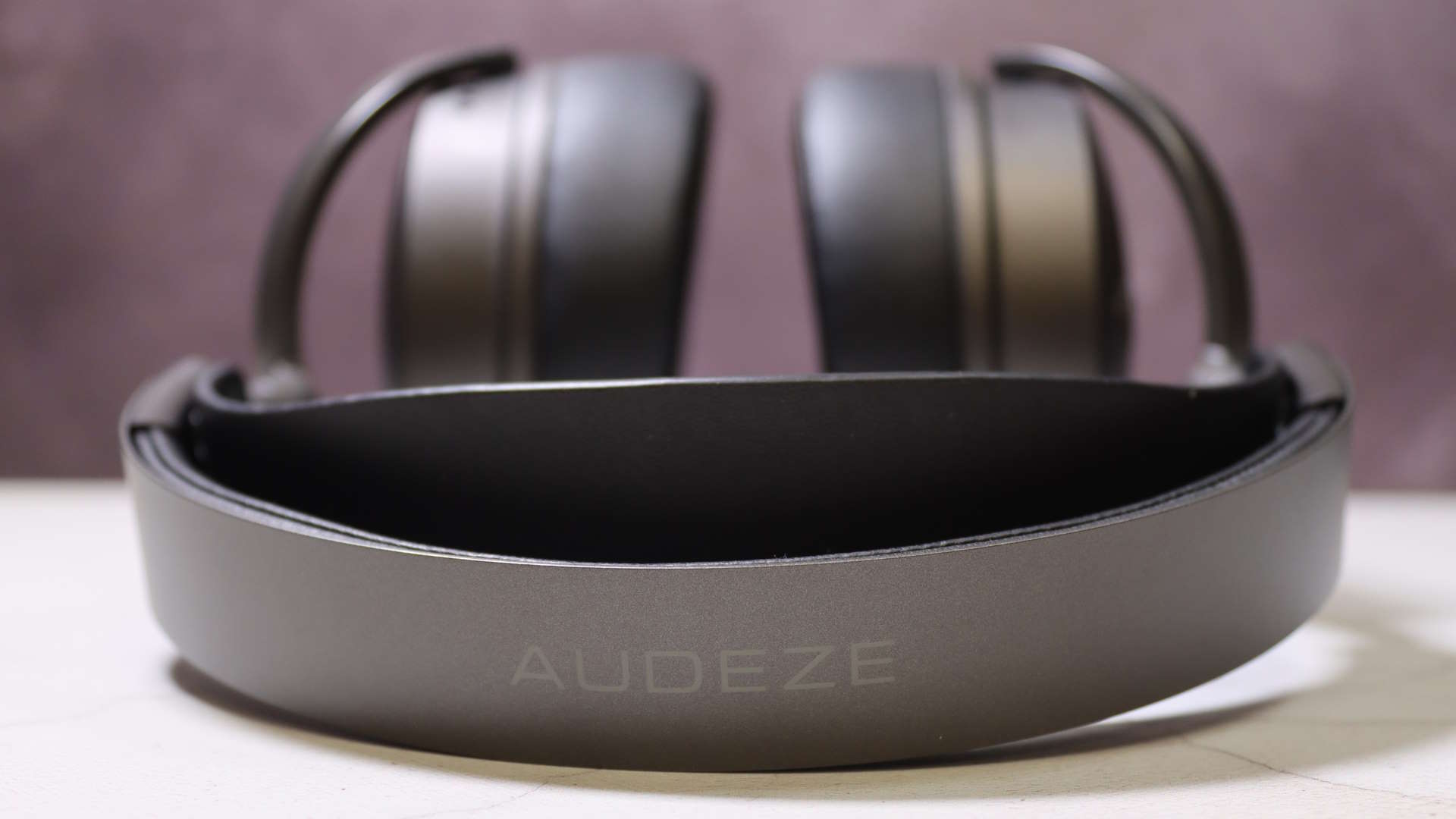
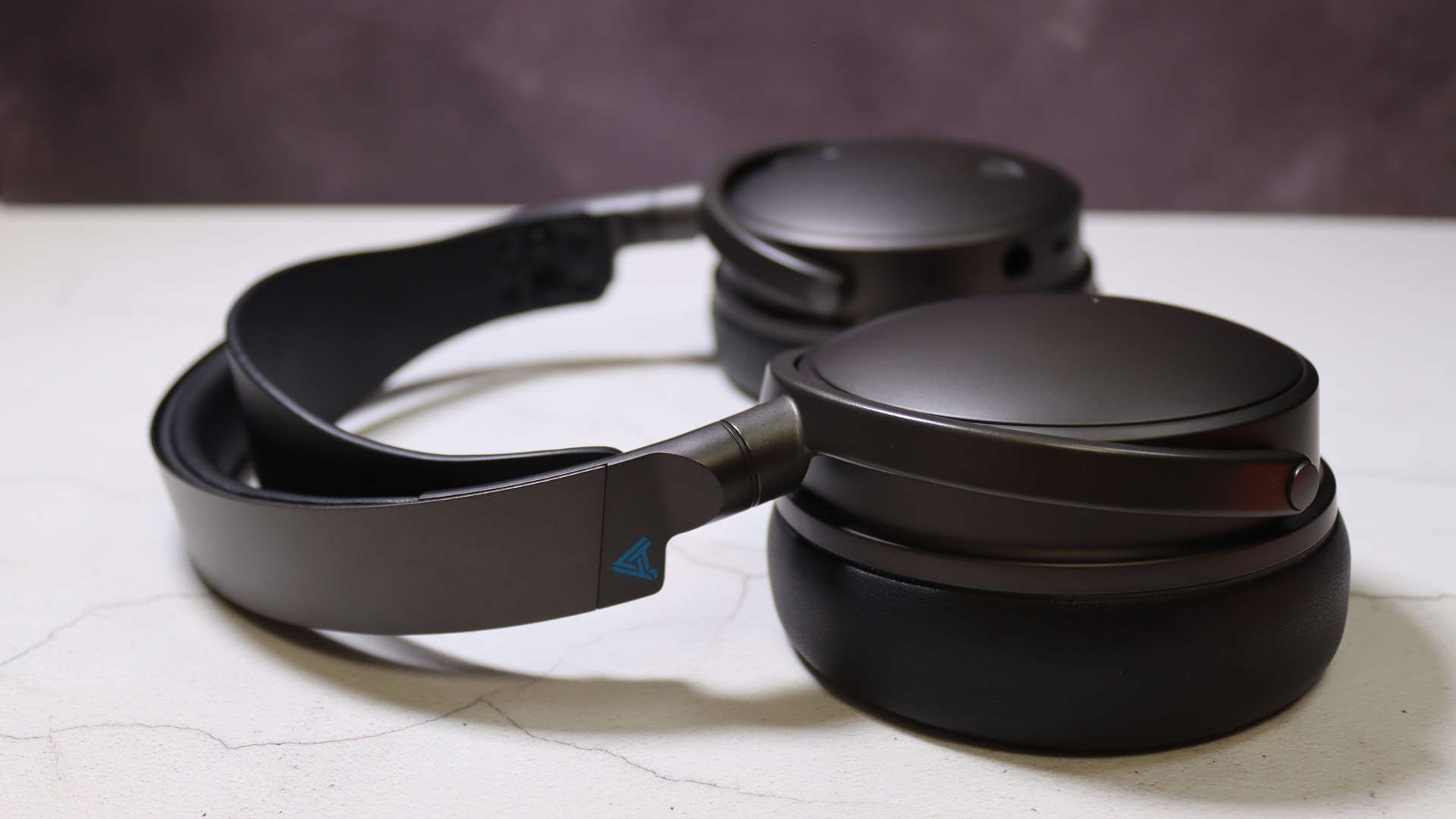
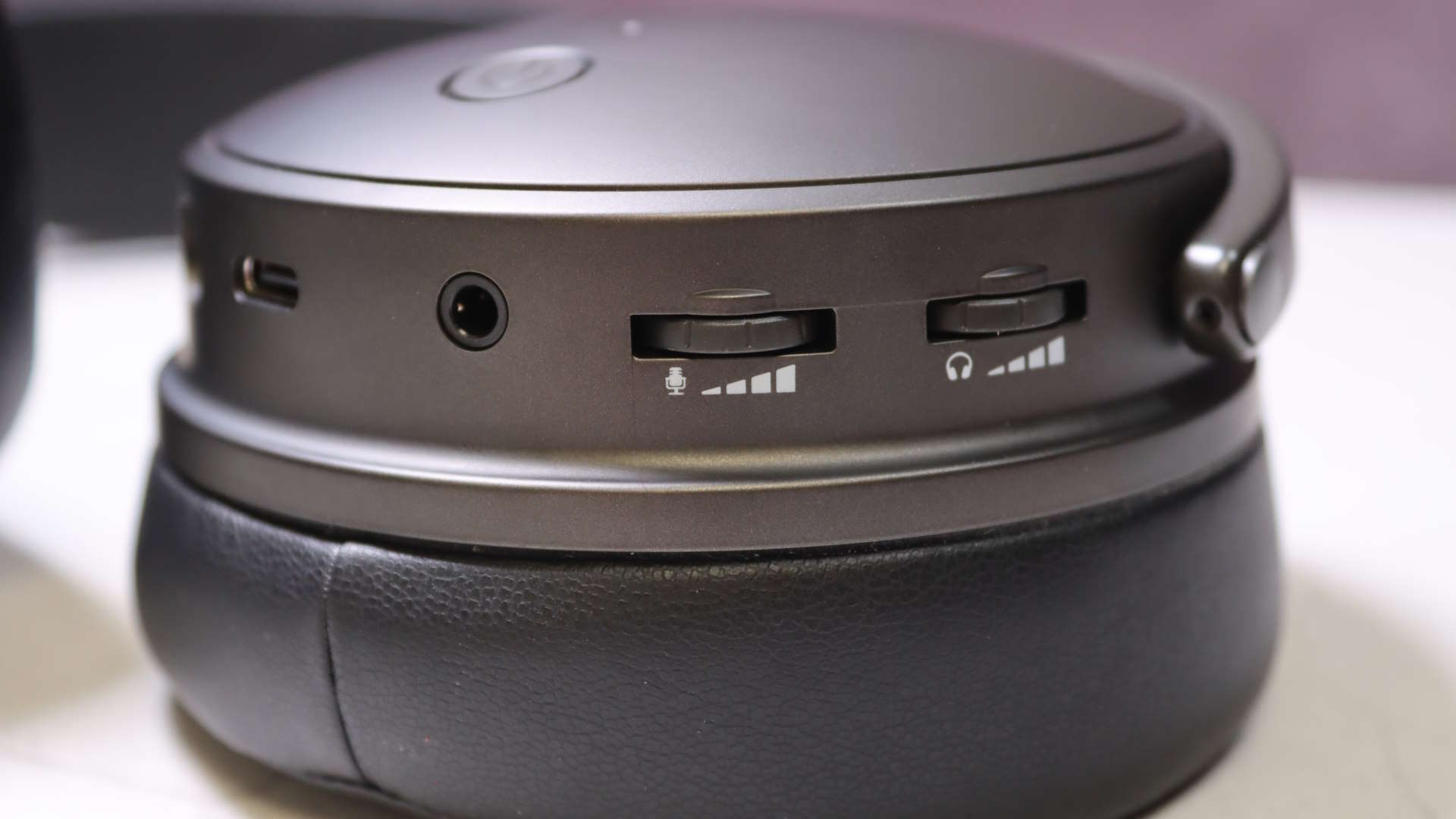
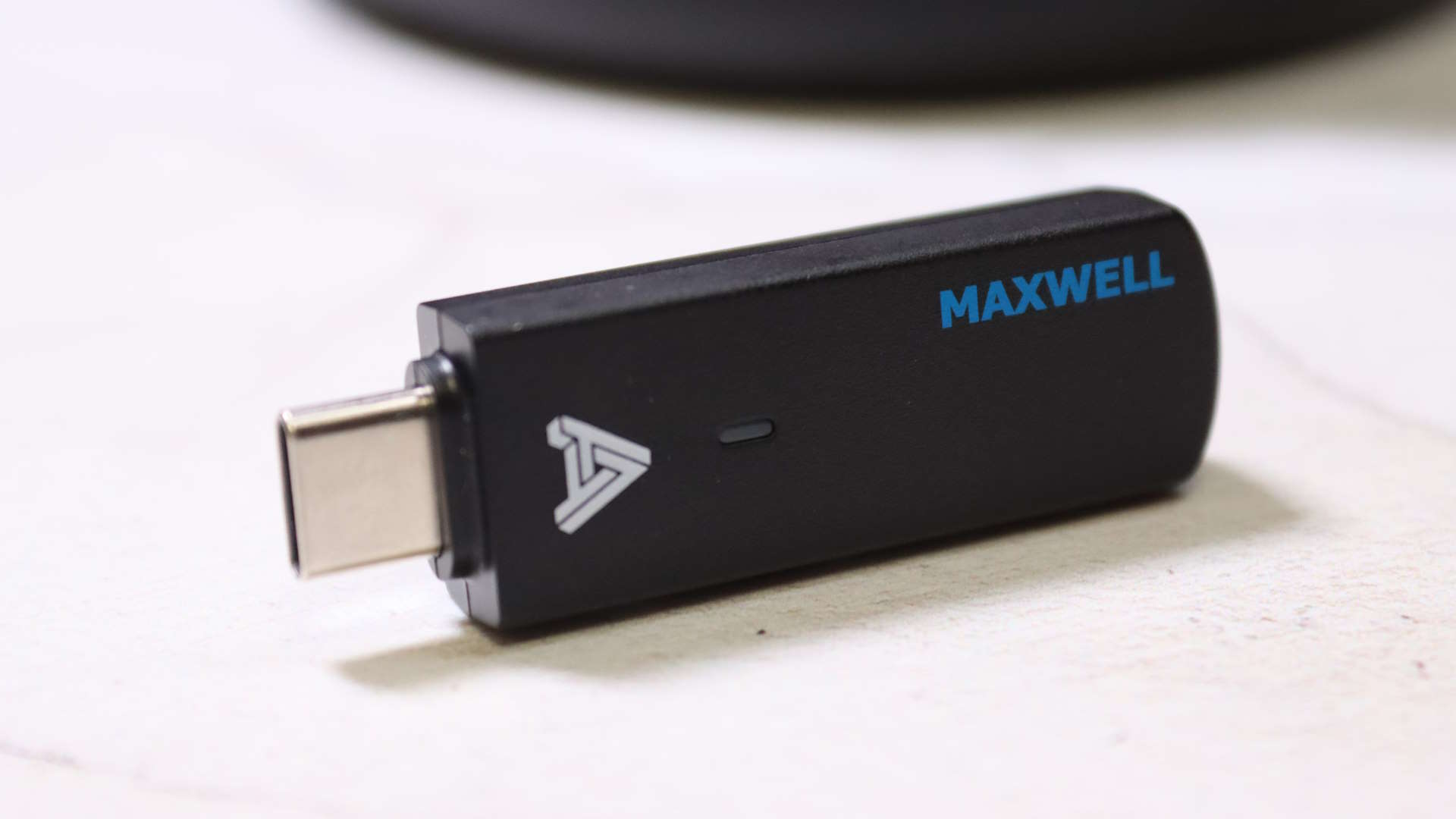
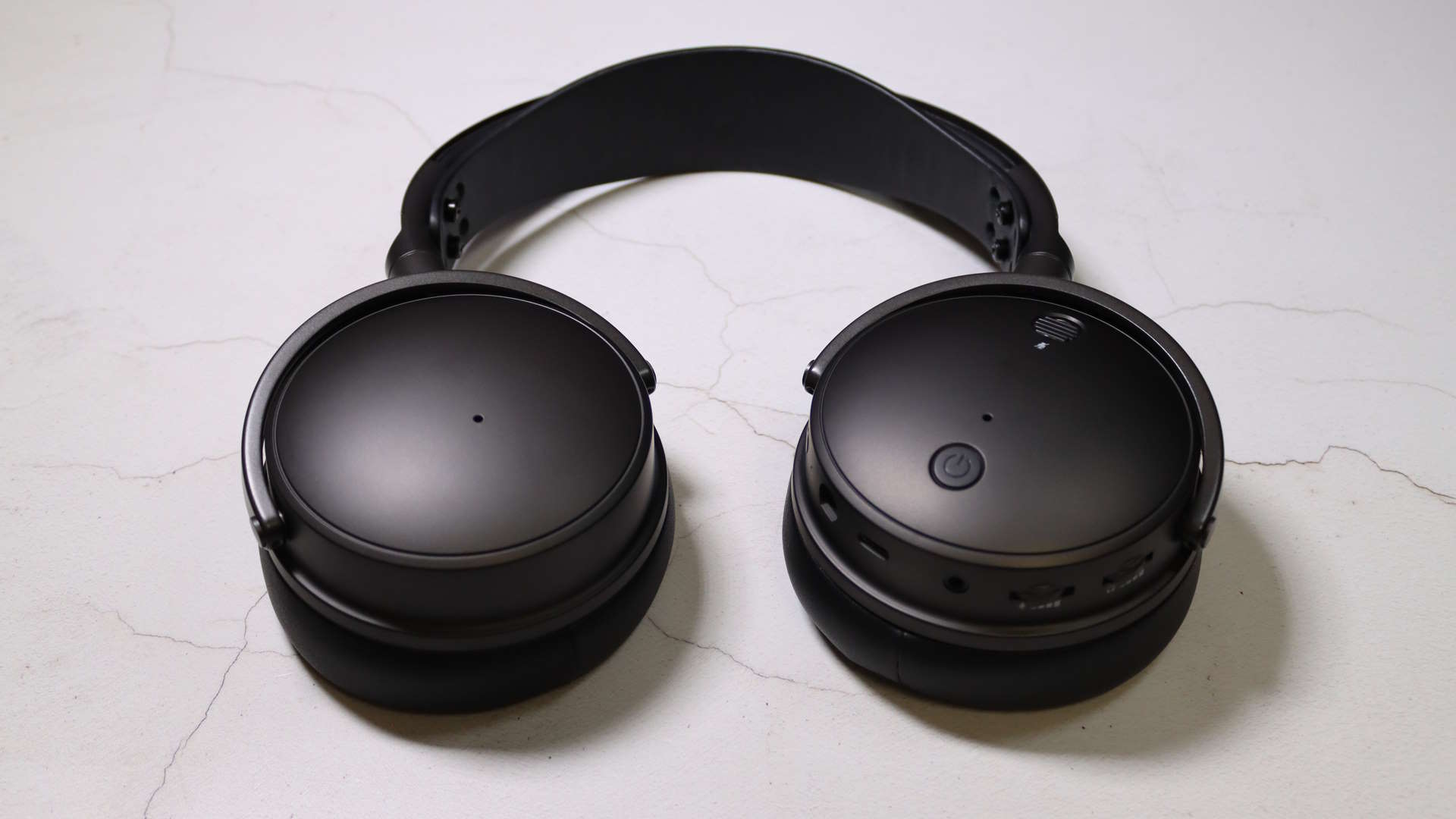
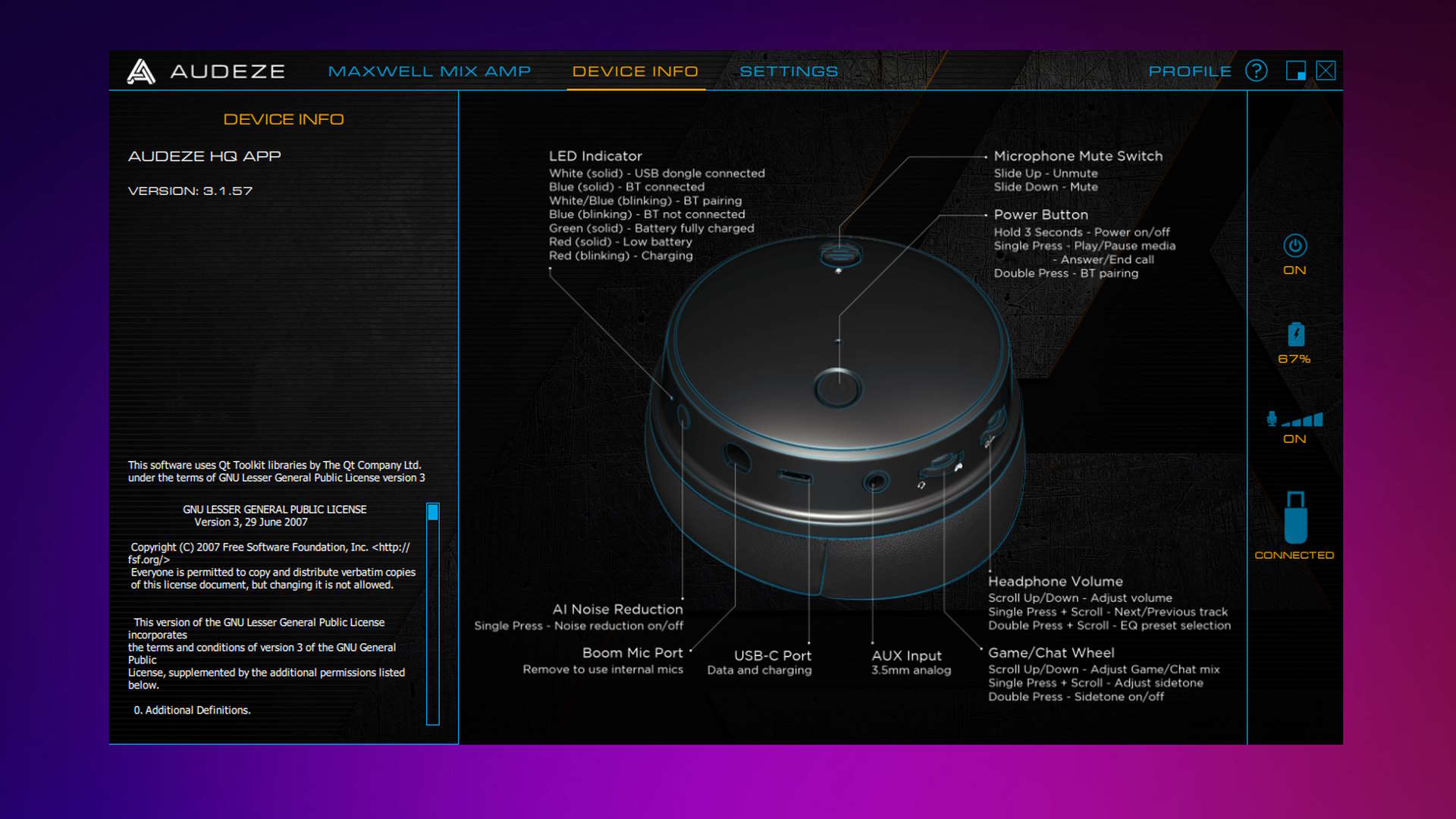
Specifications
Reasons to buy
Reasons to avoid
✅ You need the very best audio quality: Planar magnetic drivers are big and heavy, but oh boy do they make such wonderful sounds. Everything else will sound cheap once you've tried these.
❌ You want a lightweight headset: The Maxwell isn't excessively heavy but you'll certainly notice the overall mass of materials here, thanks to those beefy drivers.
The Audeze Maxwell is the best high-end wireless gaming headset because it shows that true high-end headphones and headsets can, indeed, be versatile. It shows that you can have your audiophile cake and eat it, too. Thrice over, in fact. First, by chomping down on its stellar audio quality (duh), second, by chewing on its wireless capabilities, and third, by swallowing and digesting its extra features such as a detachable mic and Bluetooth connectivity.
So, with this headset, you're getting far more than just the audiophile experience, but we should take a moment to touch on this audio experience itself. The real sign of a set of high-end cans is planar magnetic drivers, which these have.
These drivers have a wider and flatter structure which allows for more natural-sounding audio. Naturally, these drivers are more expensive to include than standard dynamic ones, but they're well worth the price for audio quality, and this thing delivers quality in spades. It offers a natural, clean, crisp (and just about every other positive adjective you can think of) soundstage, which benefits games and music alike.
In addition to this stellar quality, Audeze has thrown in a stellar hypercardioid mic, which even has a noise filter you can enable. Throw in its versatile connectivity options (3.5mm cable, Bluetooth 5.3, 2.4 GHz wireless, or USB-C cable) and you have a headset that doesn't just feel like a high-end but barebones option for audiophiles, but a genuine star for gamers and non-audio-professionals.
Read our full Audeze Maxwell review.
Best spatial audio wireless gaming headset
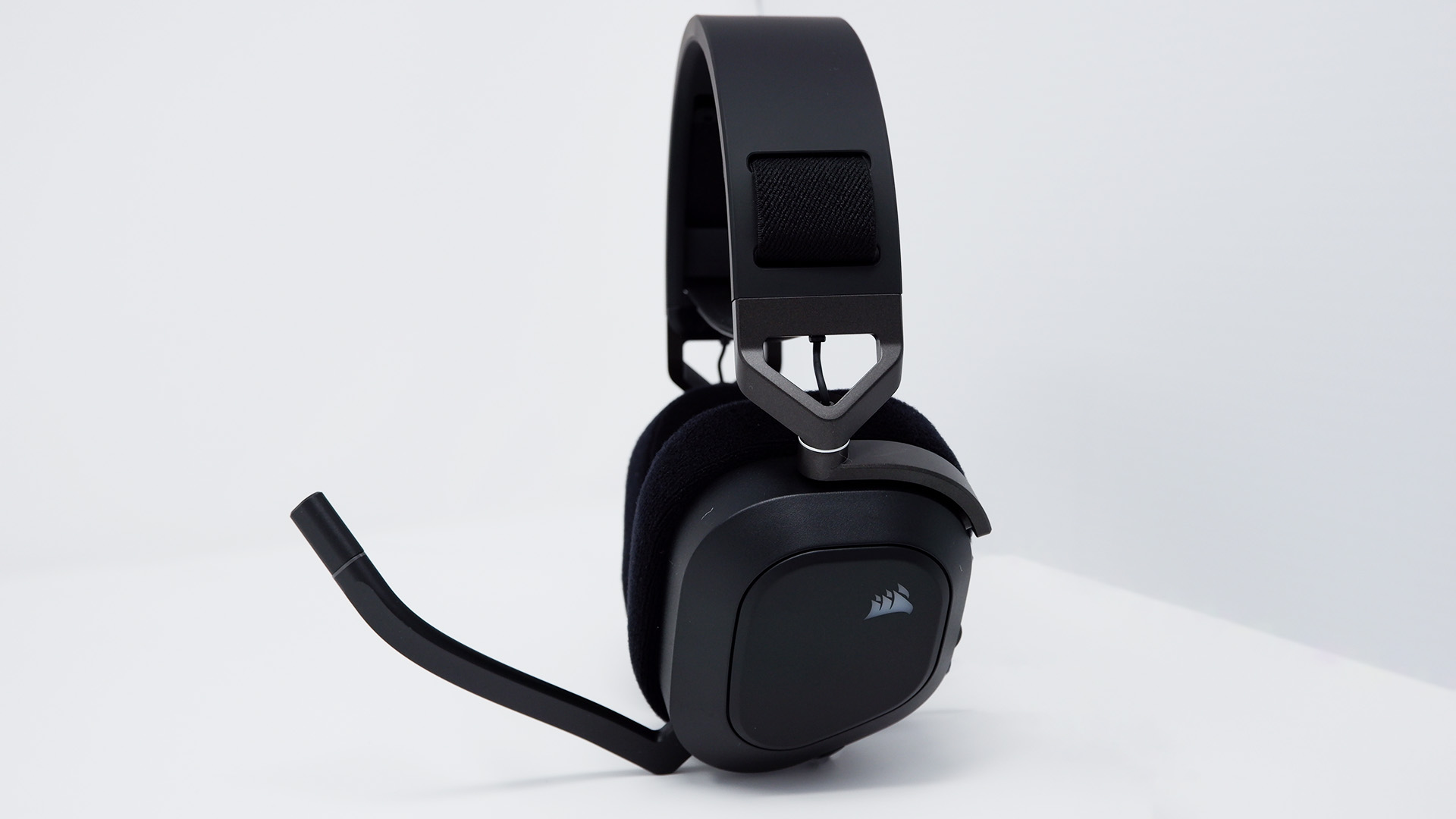
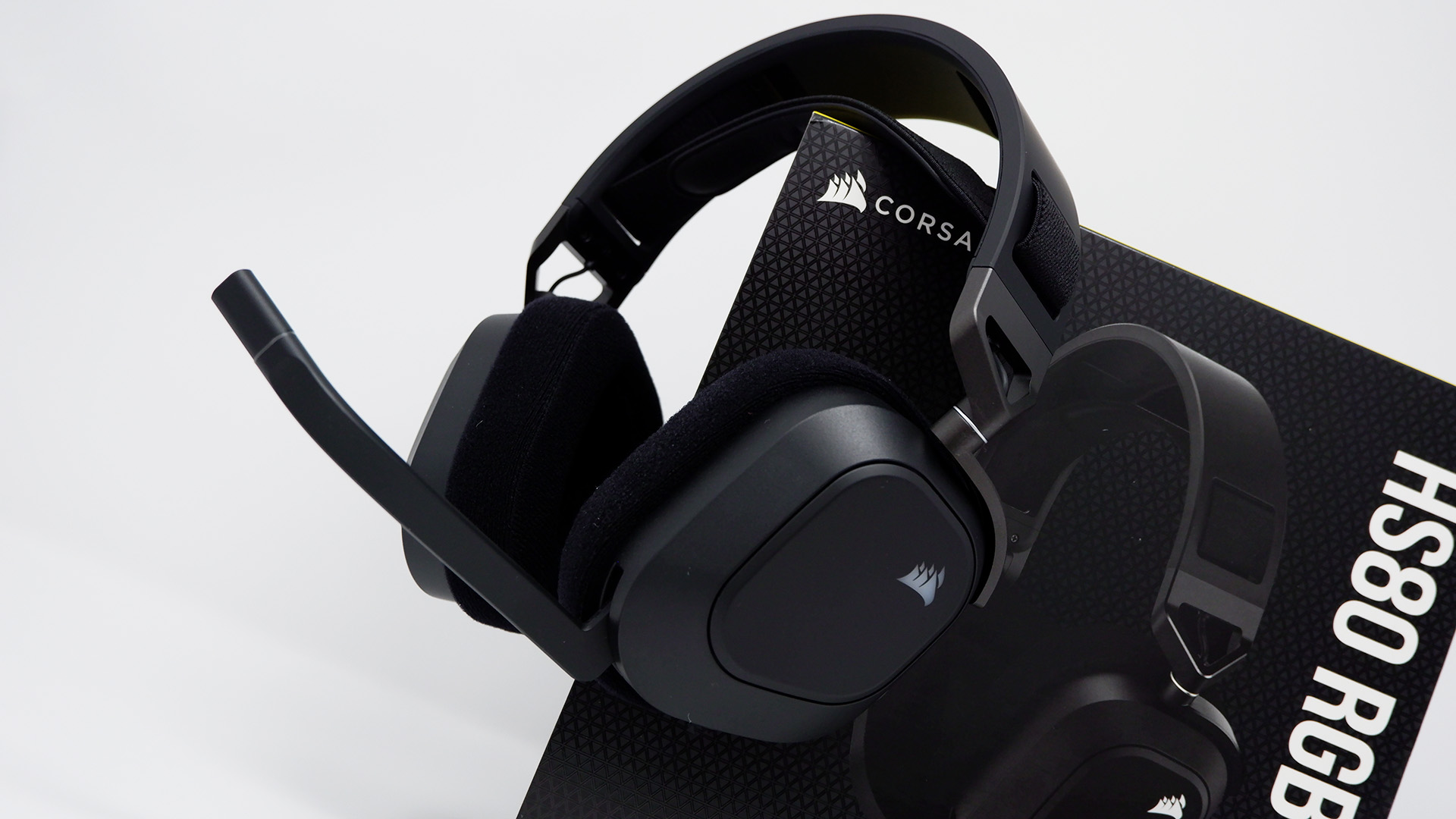
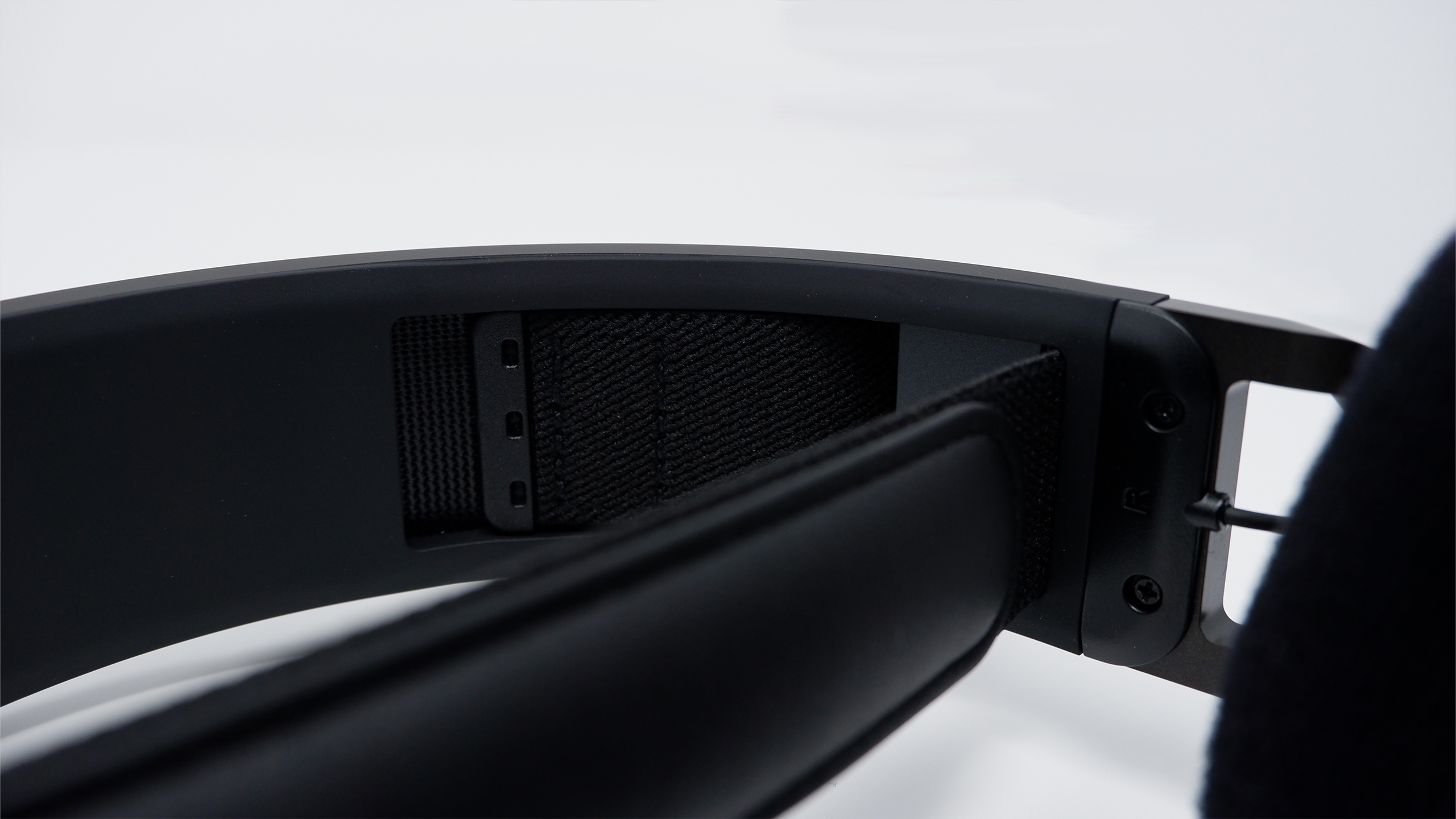
Specifications
Reasons to buy
Reasons to avoid
✅ You need rich 3D audio in games: There's nothing like hearing sounds correctly positioned and distanced around you in a game, and this headset delivers spatial audio just right.
❌ You want a discrete, small headset: The HS80 is a bulky affair and there's no escaping the fact that it feels just as big as it looks.
Surround sound isn't for everyone, but if it is for you, you can't go wrong with the Corsair HS80 RGB Wireless, which we reckon to be the best wireless gaming headset for spatial audio.
Corsair seems to have recognized that the primary audience for spatial audio headsets is those who are looking to become immersed in their games, and it seems to have catered to this perfectly with the HS80 RGB Wireless.
Surround sound or not, you can't really become immersed in a game if you're constantly being reminded of the headset sitting on your head. That's why the HS80 not only cuts the cord but also keeps things nice and comfy, too, with an adjustable floating headband. And its Slipstream wireless tech ensures a lag-free experience, which is another thing that should allow you to keep your head in the game.
Of course, the spatial audio itself must be great for immersive gaming as well, and the HS80 RGB Wireless delivers on this front. Whilst it can pump out up to 96 kHz with supported audio files when plugged in, its wireless 48 kHz audio is more than enough for immersive spatial audio, too. Sub-bass is a little lacking with the headset, but 3D audio sounds great and it supports Dolby Atmos, something the headset provides you with a license for.
Throw in its surprisingly stellar microphone (one of the best we've tried, in fact) and you have not only a cracking wireless headset for immersive surround sound gaming, but a great all-rounder, too.
Read our full Corsair HS80 RGB Wireless review.
Best wireless earbuds for gaming
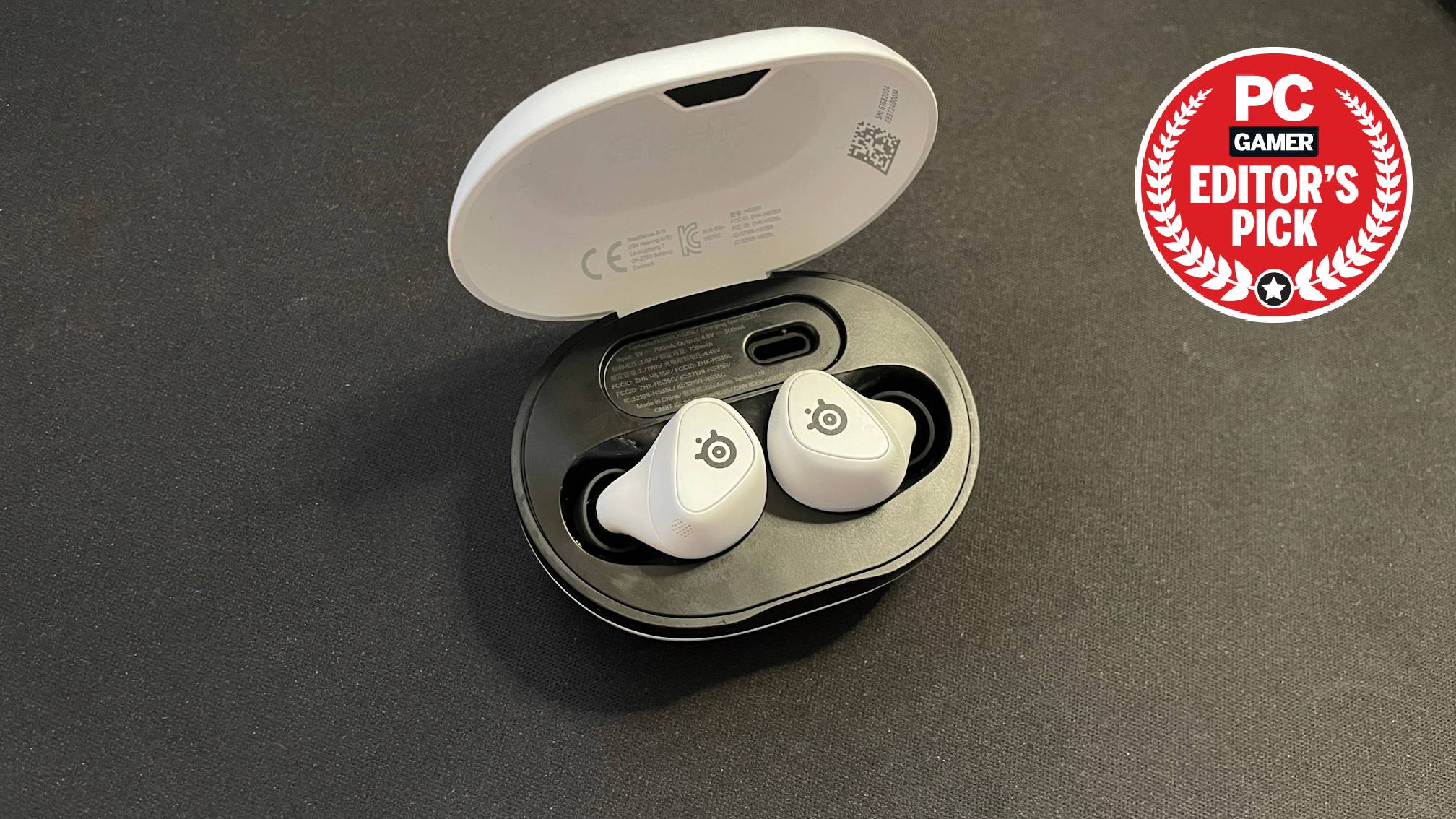
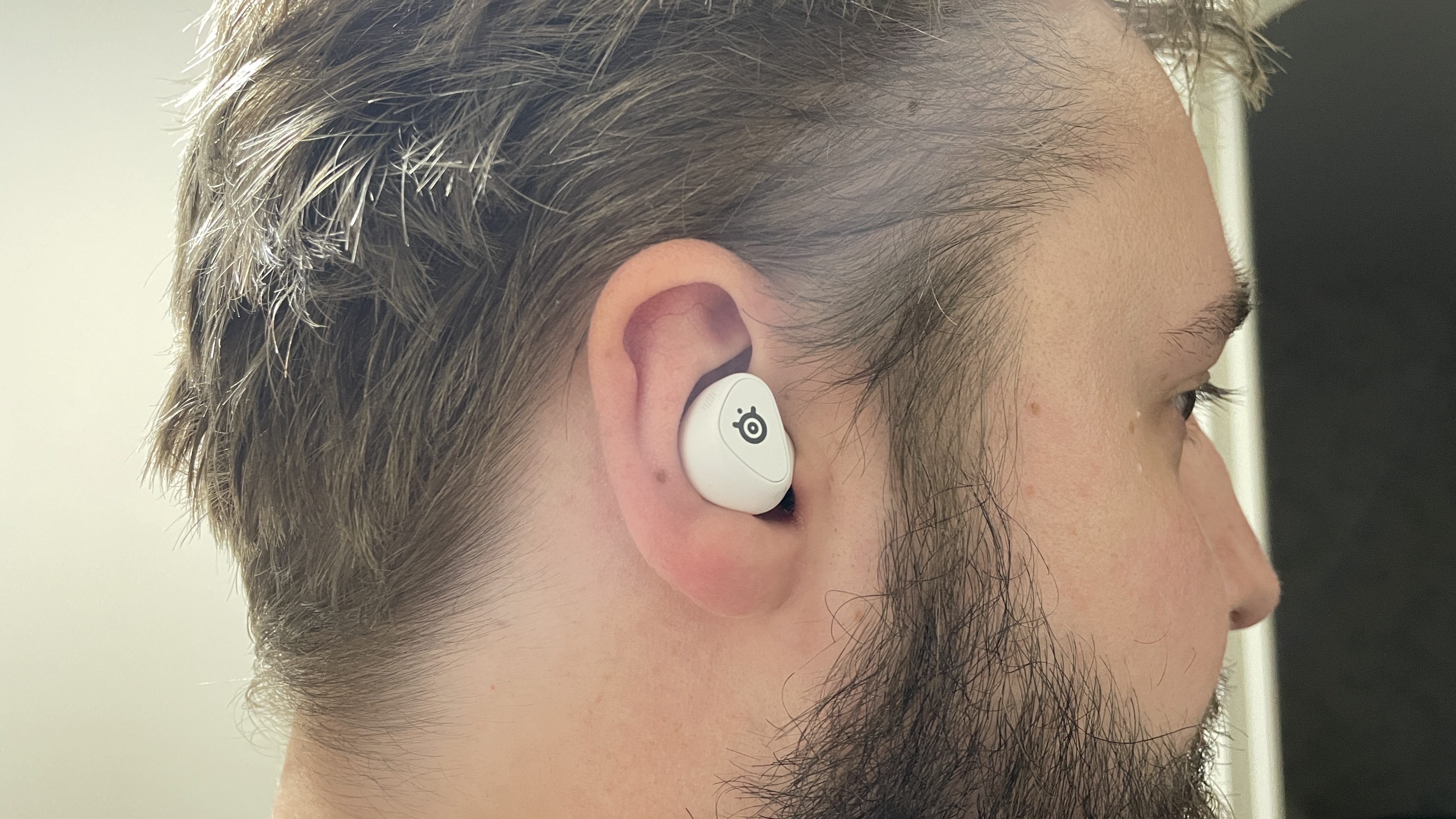
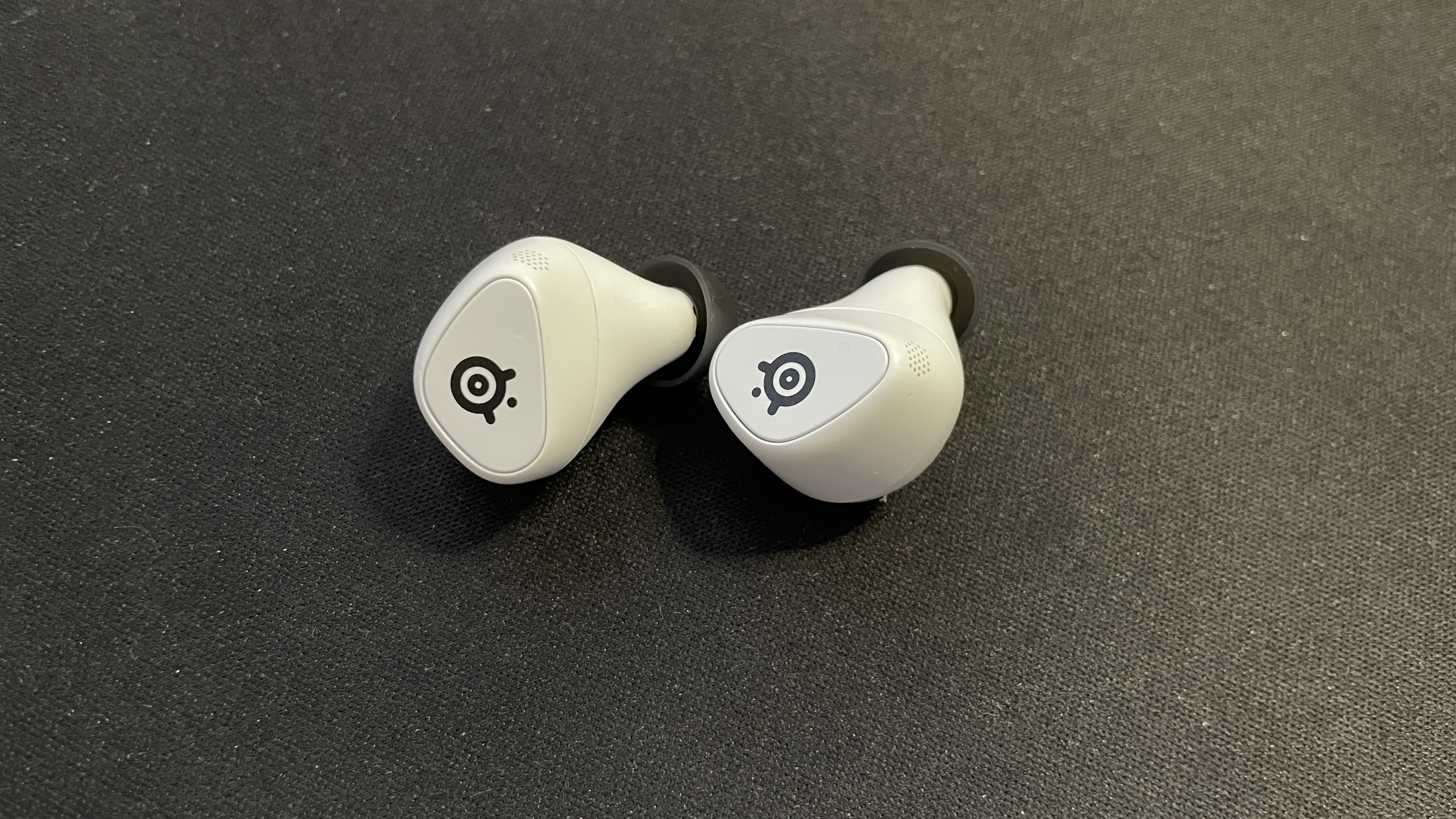
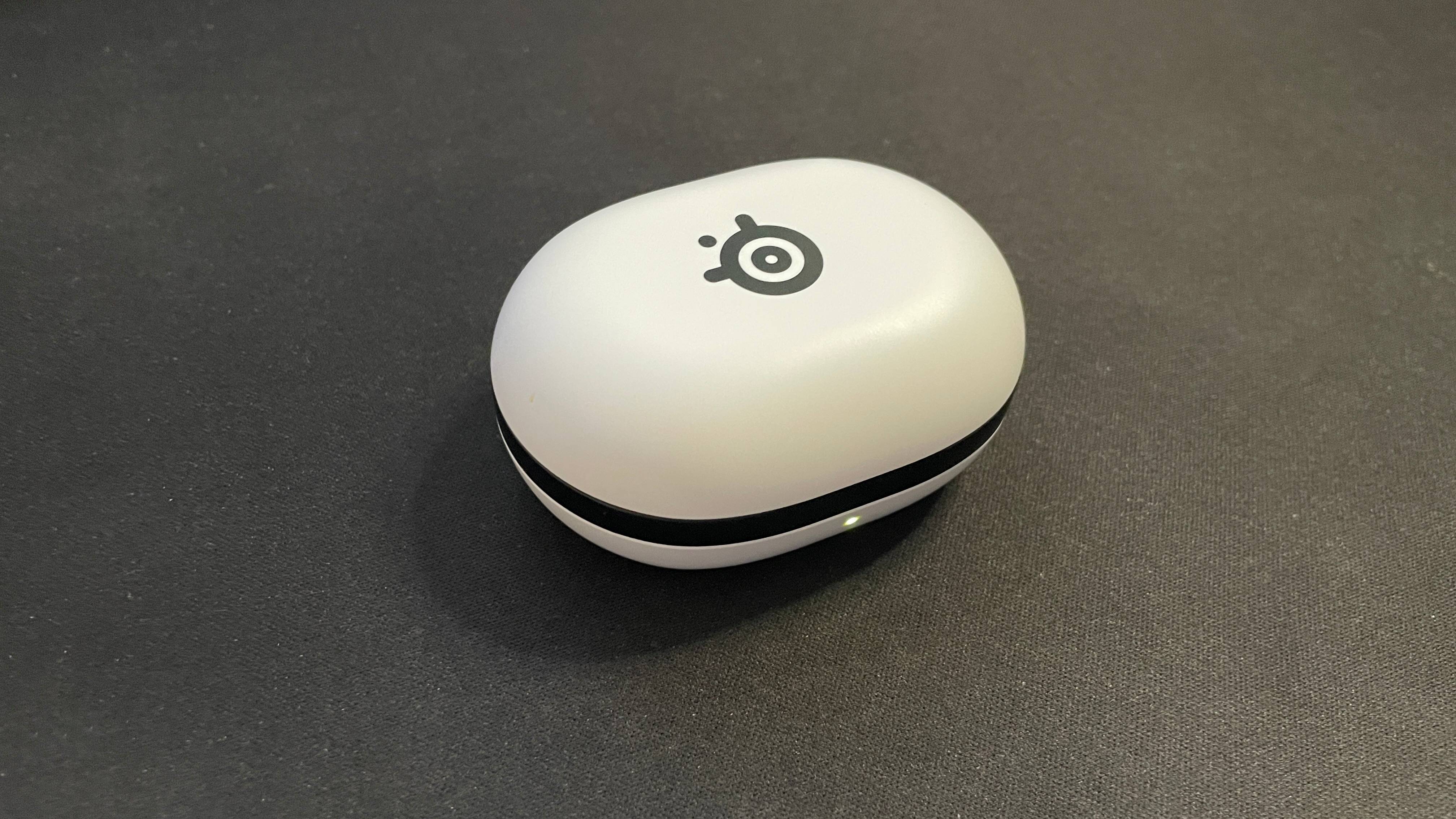
5. SteelSeries Arctis GameBuds
Our expert review:
Specifications
Reasons to buy
Reasons to avoid
✅ You want headphone-level audio quality: The Arctis GameBuds offer audio quality that's surprisingly well-rounded for drivers so small.
✅ You want versatility: The GameBuds have ANC, transparency mode, Bluetooth and 2.4 GHz connections, and great battery life to boot.
❌ You're on a budget: The GameBuds aren't cheap, and while they're worth the price, if you need to save money, something like the JBL Quantum TWS earbuds might be a better bet.
The SteelSeries Arctis GameBuds are by far the best wireless earbuds for gaming, offering an unparalleled combination of features and quality. Yes, they're expensive, but they're worth every penny.
In his review, our Jacob F. found them to stack up quite well even against his audiophile open-back headphones, which is quite the feat for some tiny 6 mm drivers. Of course, you're not going to get quite the same quality as you would from a pair of high-end audiophile cans, but you're getting clarity and depth of tone that beats a lot of over-ear gaming headsets.
This is helped by the SteelSeries software which allows you to select different audio profiles tailored to different games or use cases such as listening to music or watching movies, and they can even be selected from your phone app. They're surprisingly useful, and if you want to tailor things more to your own liking, the desktop SteelSeries GG software has a fully customizable parametric EQ.
Apart from audio quality, another thing the GameBuds nail is versatility. They can connect over Bluetooth 5.3 or 2.4 GHz, and you can switch between the two with a press of the satisfying mechanical earphone button. That means you can use it over 2.4 G with your handheld, console, laptop, or desktop, and then instantly switch over to Bluetooth to connect to your phone when you leave the house.
They have active noise canceling (ANC) and transparency mode, too, both of which are incredibly useful for different purposes. If you're on public transport you might want to slap ANC on to block out some of the background noise, but if you need to listen out for something you can quickly turn transparency mode on to listen to your surroundings.
These settings drain the battery a little quicker, but thankfully battery life is stellar with the Arctis GameBuds. You get 10 hours on the actual earphones, plus another 30 from the charging pod which itself can be charged via wireless Qi charging or fast USB-C charging.
The GameBuds are, quite simply, a phenomenal all-round pair of gaming earbuds. Our previous pick was the JBL Quantum TWS, which is still a great pick if you want to save some money. But the GameBuds are well worth their extra cost. They have better battery life, stunning audio, physical buttons, and a range of tailored gaming EQ profiles. In other words, they're the whole package.
Read our full SteelSeries Arctis GameBuds review.
Best Bluetooth gaming headset
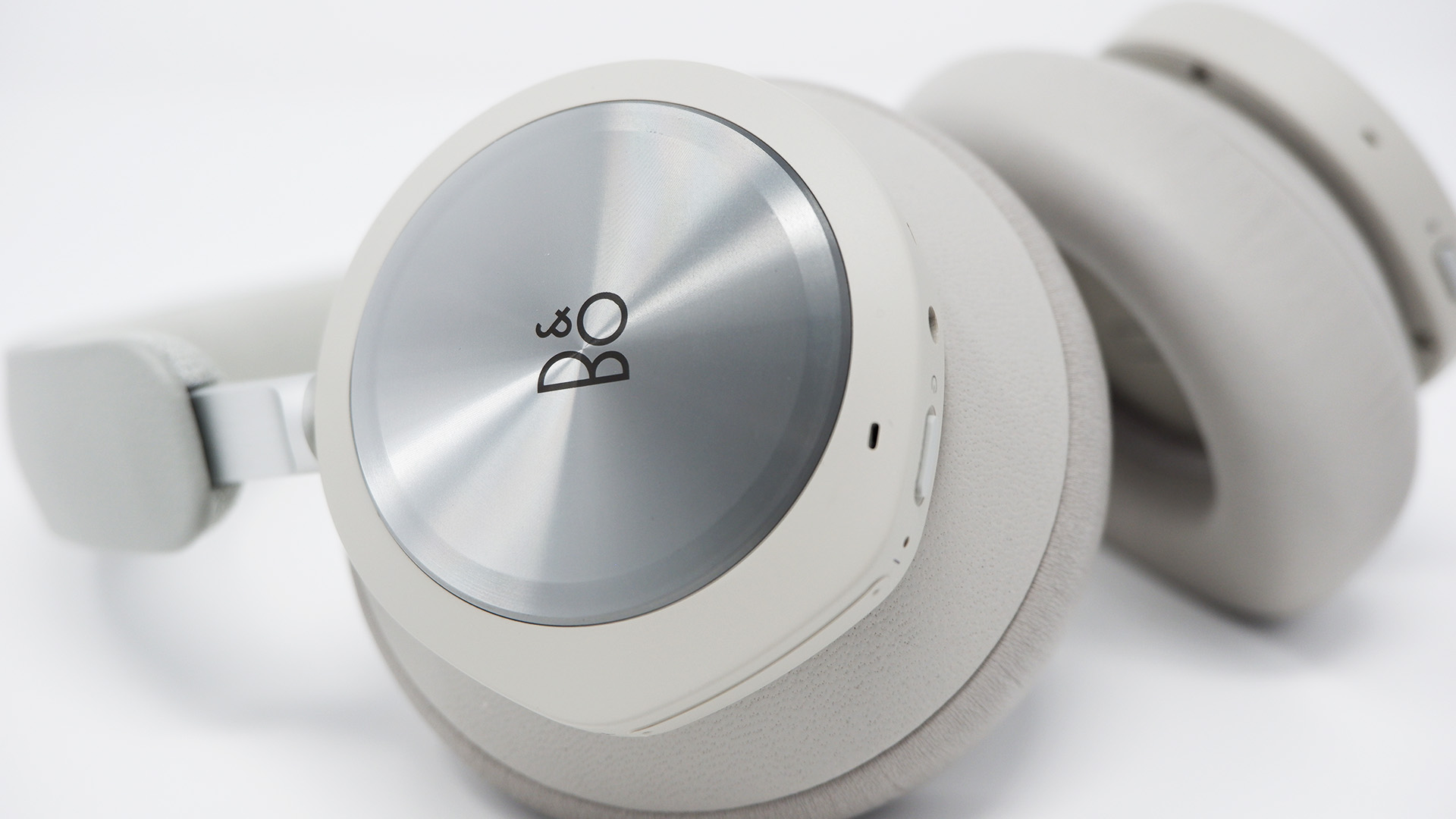
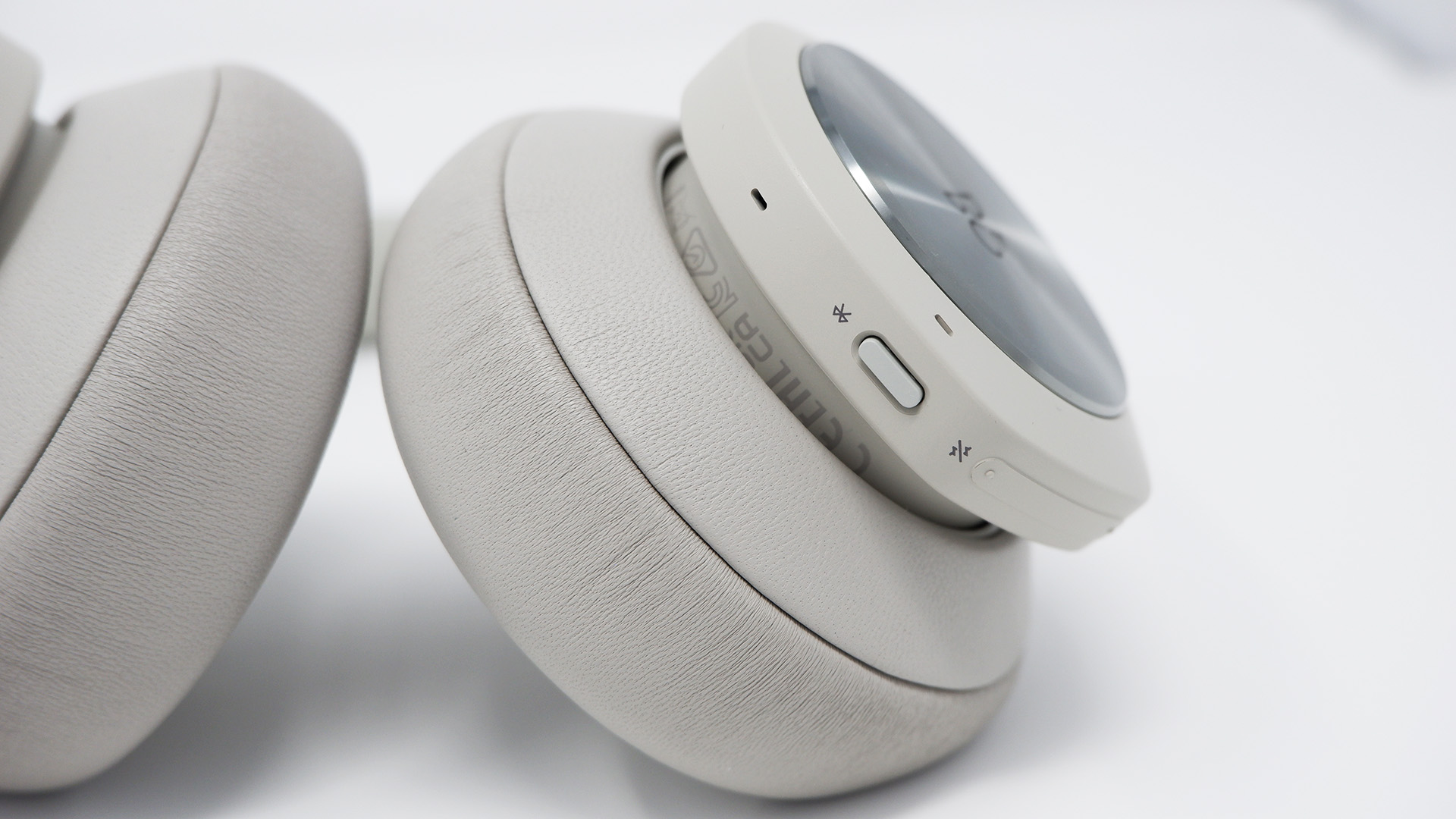
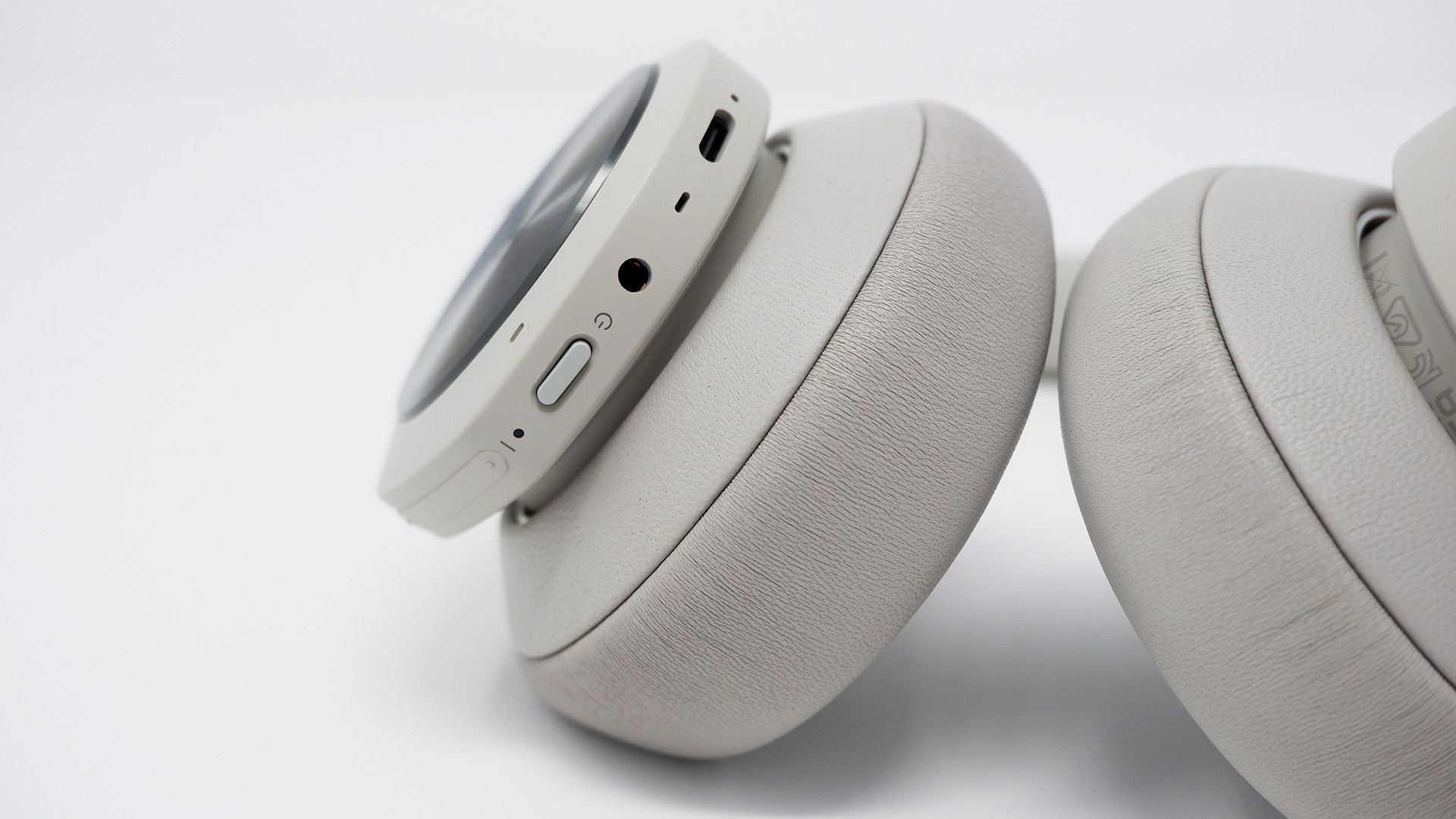
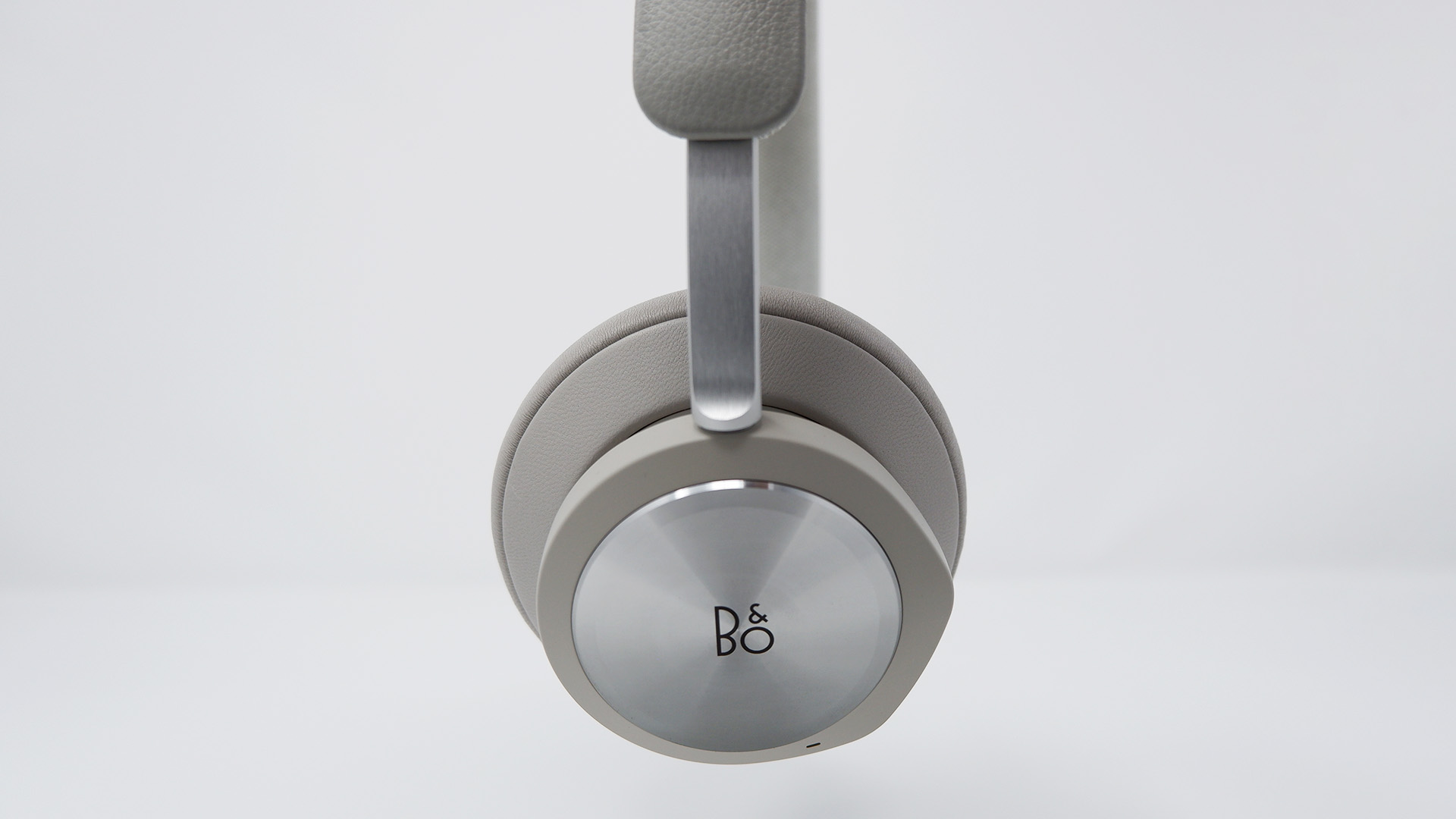
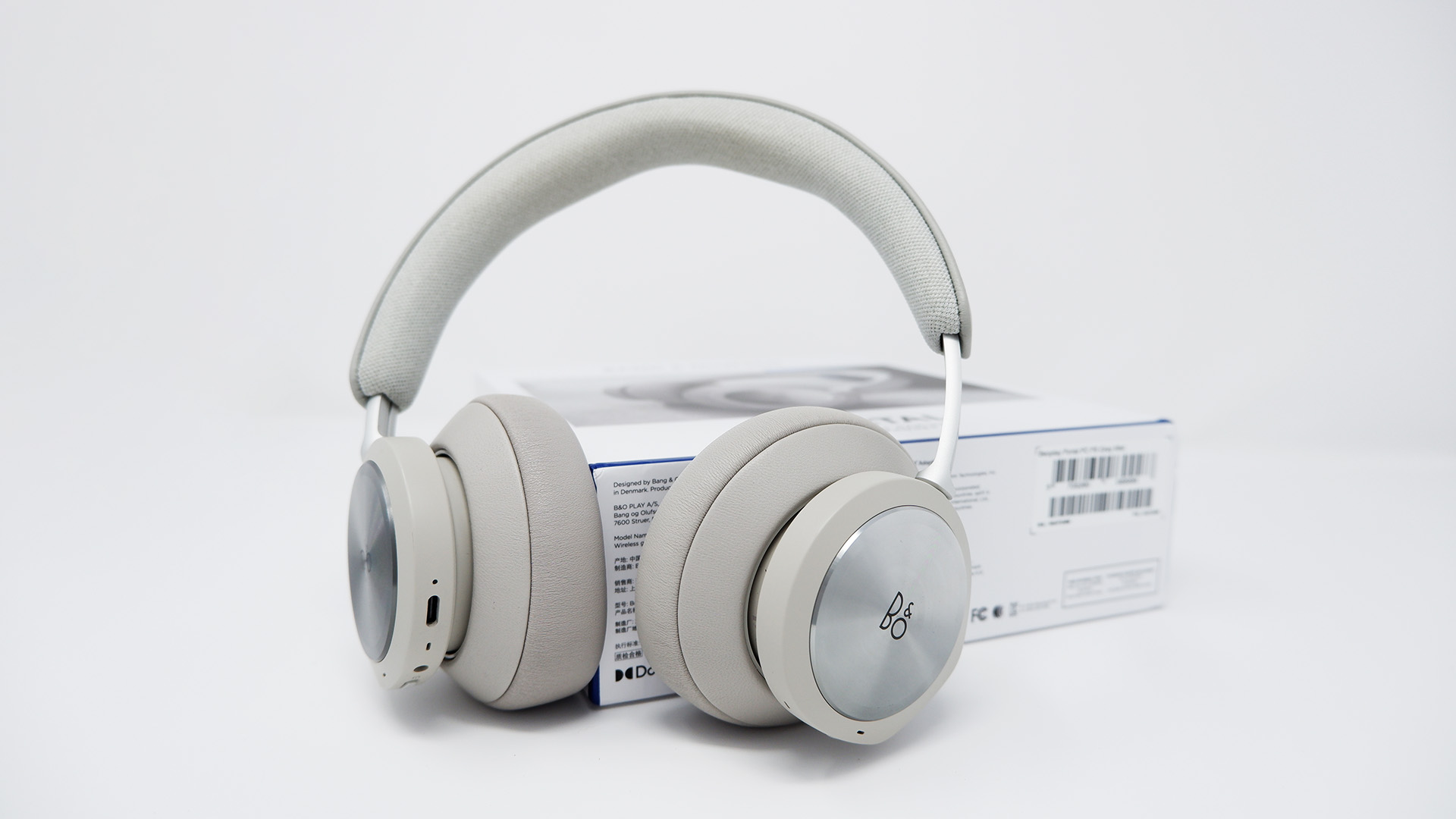
Specifications
Reasons to buy
Reasons to avoid
✅ You need one headset for many uses: The Beoplay Portal is ideal if you want a single set of cans to game at your desk and on the go, or wear them on the bus without looking daft.
❌ You need a good microphone for gaming: For such an expensive headset, you'd expect great mics, but these are rather quiet and nothing extraordinary.
If you want the best Bluetooth headset for gaming, music, and movies, then look no further than the Bang & Olufsen Beoplay Portal. You can seamlessly connect these up to a gaming PC, console, phone, or TV—there's no need for multiple headsets if you have a Portal.
But just because you can, doesn't mean you should. Fortunately for the Beoplay Portal, the vibrant and lush audio quality, detailed over the full volume range, means that you'll pick these over other cans or earbuds, time and time again. With a tad more focus on mids and highs, rather than the normal over-powering bass of most gaming headsets, you'll be able to enjoy every kind of audio consumption.
The leather-clad ear pads are very comfortable, although clearly not vegan-friendly, and provide excellent noise isolation. Coupled with the seriously impressive active noise cancellation, you can easily block out the real world.
Bang & Olufsen have added two features to allow you to hear your own voice, while the mic is in use, as well as letting some non-repetitive sounds bleed through so you're not totally isolated if need be.
Speaking of the microphone, there's no dedicated arm here, just a collection of small mics embedded in the casing. That's great for portability, but the overall response is quite muted—your voice will sound quieter than normal, and the general quality of the mic's audio output is rather average.
The Bang & Olufsen Beoplay Portal might just be the only headset you need for modern life, though you'll need to pay a hefty price for such a master of all trades. Thankfully, the features, build quality, and packaging all go some way to making the high price a tad less painful.
Read our full Bang & Olufsen Beoplay Portal review.
Best battery life wireless gaming headset
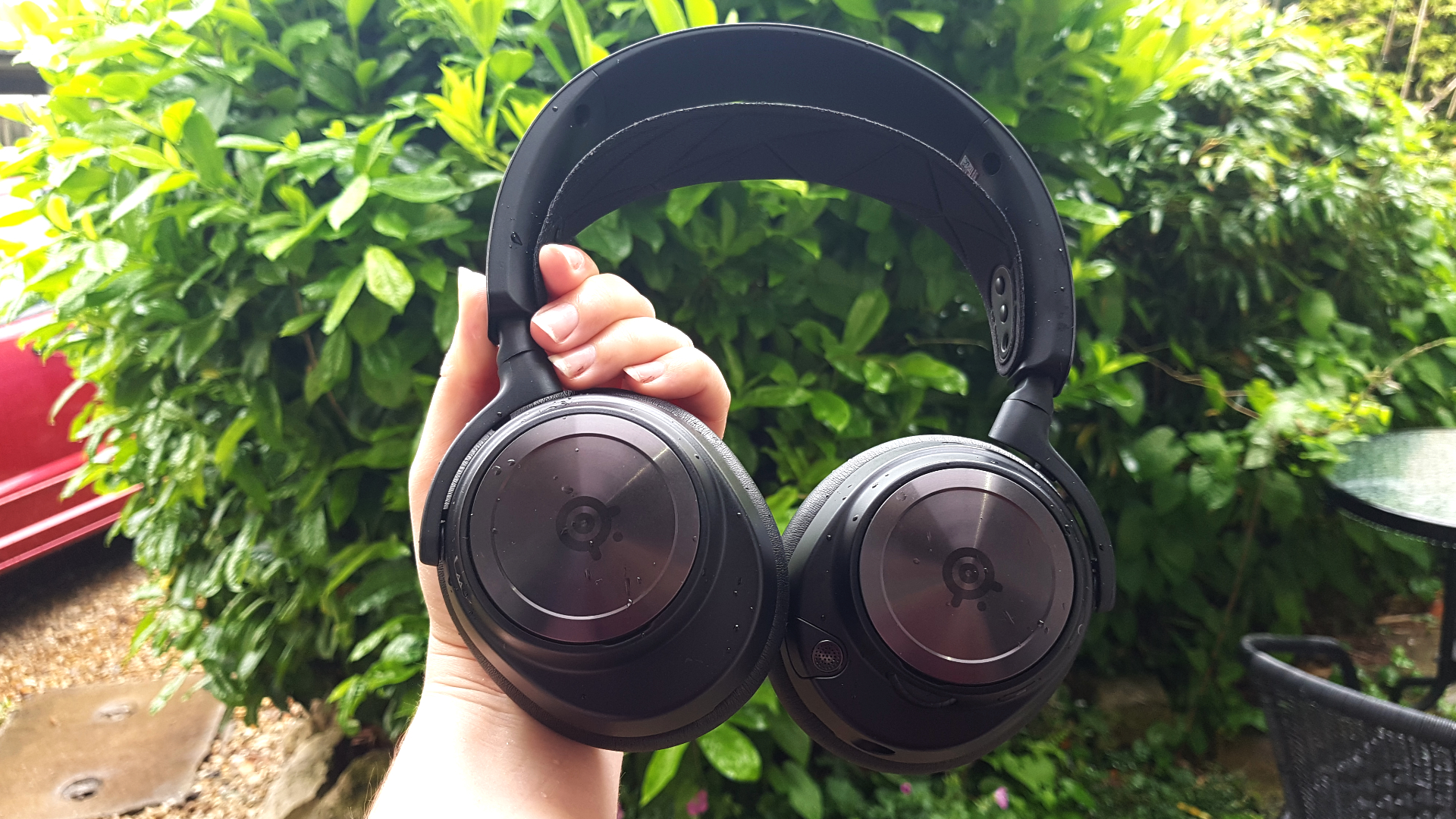
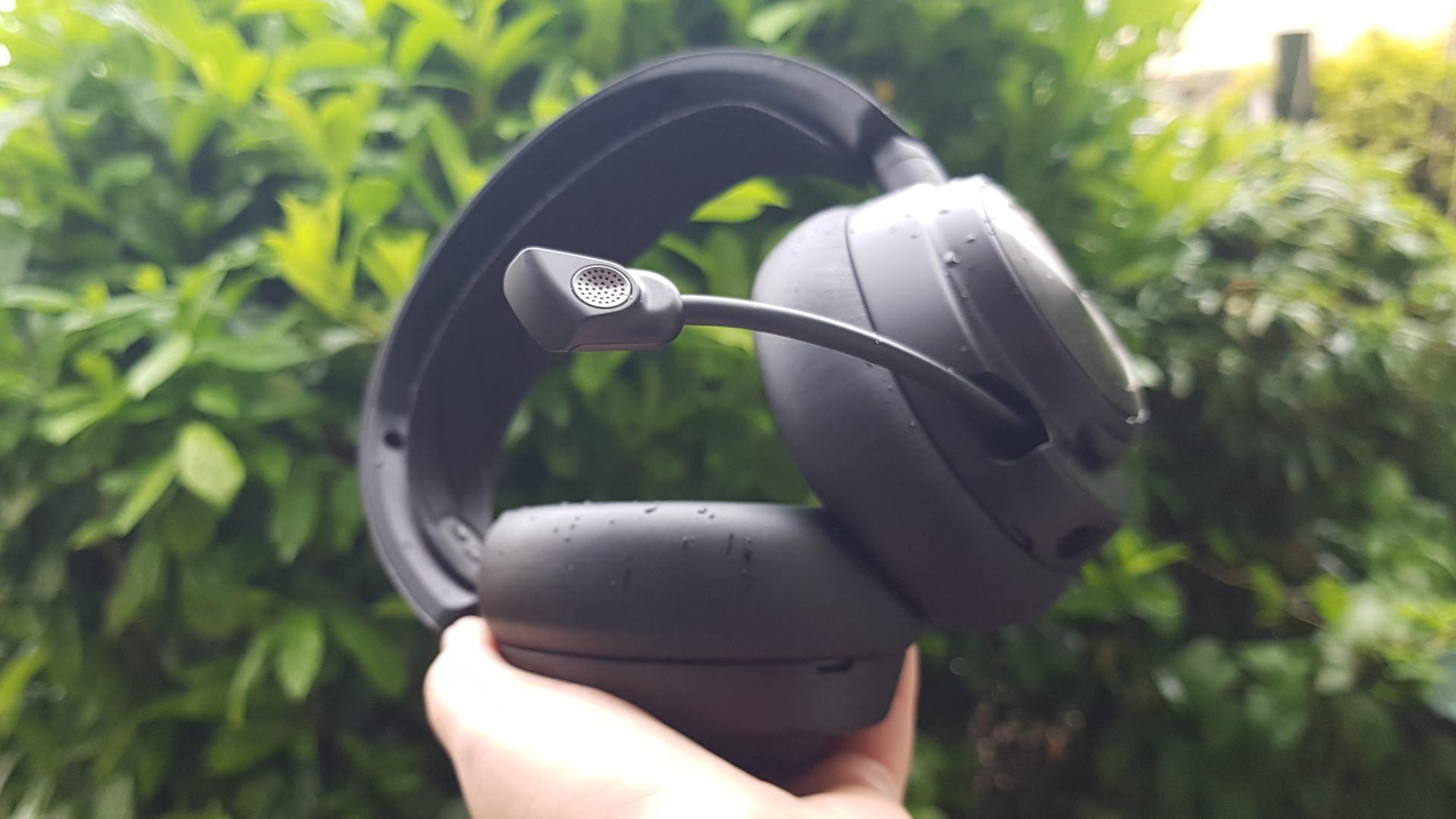
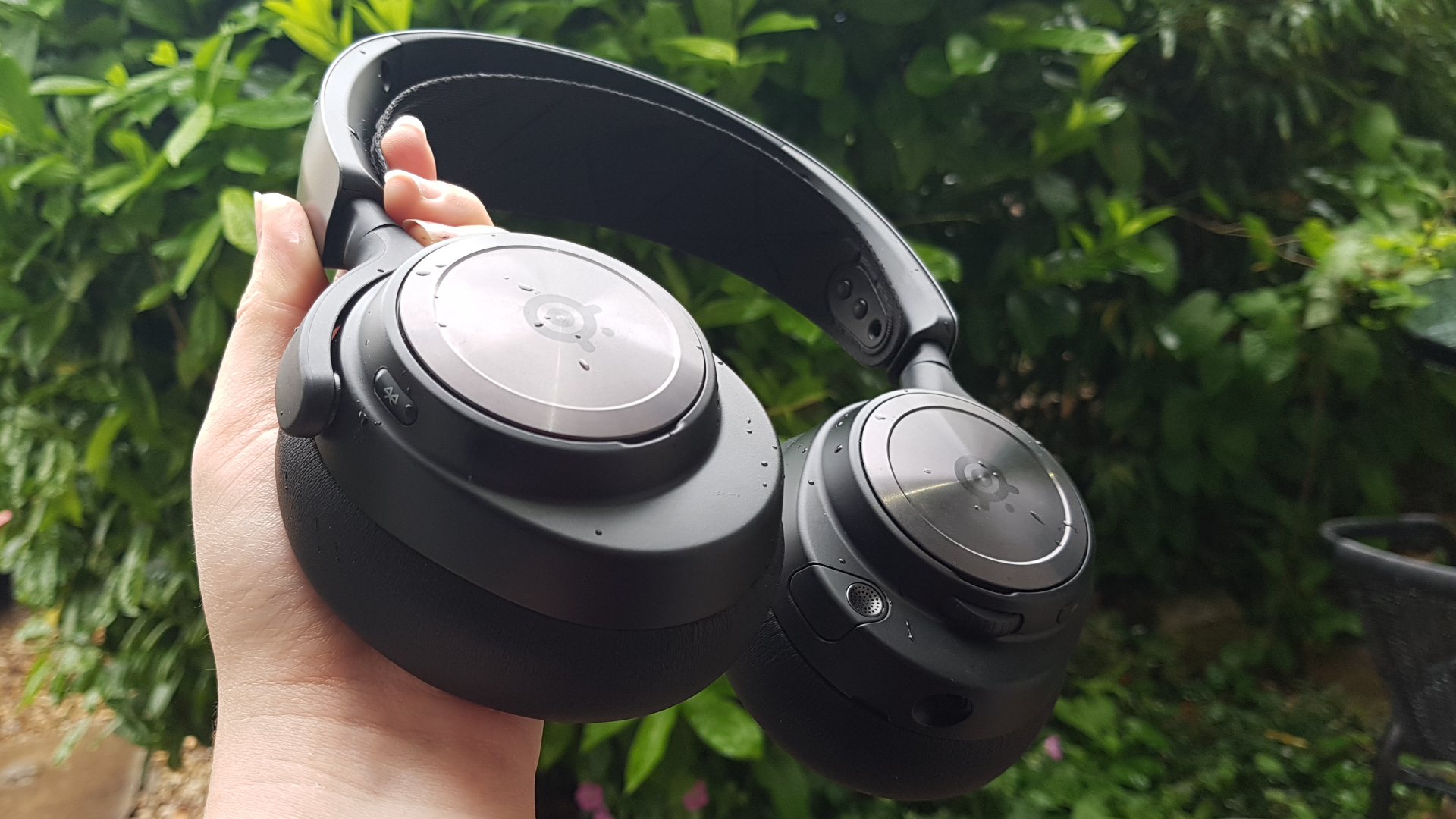
Specifications
Reasons to buy
Reasons to avoid
✅ You need a headset that works indefinitely: The twin battery packs make it a breeze to keep the Nova Pros going hour after hour, and never miss a beat.
❌ You don't want to spend too much money: There's no escaping the fact these SteelSeries cans are mightily expensive but that's the price you pay to have it all.
You might think the HyperX Cloud Alpha Wireless to be the gaming headset with the best battery life, but you'd be wrong. It's the SteelSeries Arctis Nova Pro Wireless. Yes, the Cloud Alpha's 300 hours is impressive, but can it beat practically infinite battery life? Hear me out.
The Nova Pro Wireless has hot-swappable batteries that charge up in under an hour, which essentially means you can keep your headset charged at all times, provided you remember to actually charge your extra battery before the 30 hours of charge on the current one expires. This is a similar approach to many favored controllers, and it's one I think works well. SteelSeries definitely deserves a tip of the hat for making the batteries accessible in this one.
It's a great headset all around, too. We're talking superb bass response, clarity, and even active noise cancellation for those of you gaming in loud environments. And if you're into this kind of thing, you can even get down and dirty in the SteelSeries software with a completely adjustable equalizer.
It also comes with a DAC that has two USB-C inputs and two 3.5 mm ports and serves as an amp—a DAC, I might say, that looks positively gorgeous. Throw in the fact that this headset can connect to two devices simultaneously over 2.4 GHz wireless or Bluetooth, and you have quite the package.
The only real downside to this headset is its mic quality, which is a little lacking as it's a little fuzzy. Oh, and its hefty price tag, of course, there's that.
Read our full SteelSeries Arctis Nova Pro Wireless review.
Best open-back wireless gaming headset
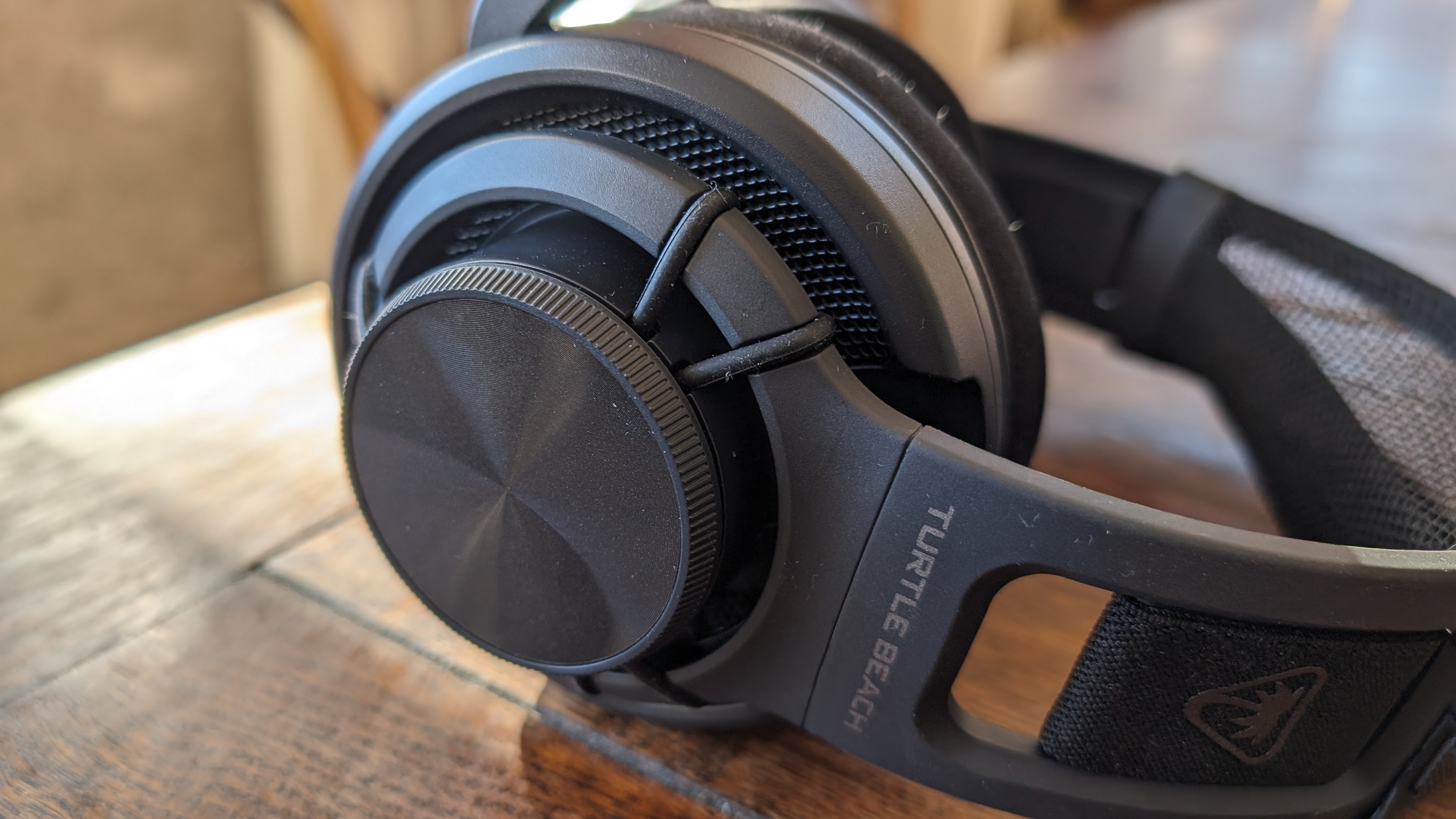
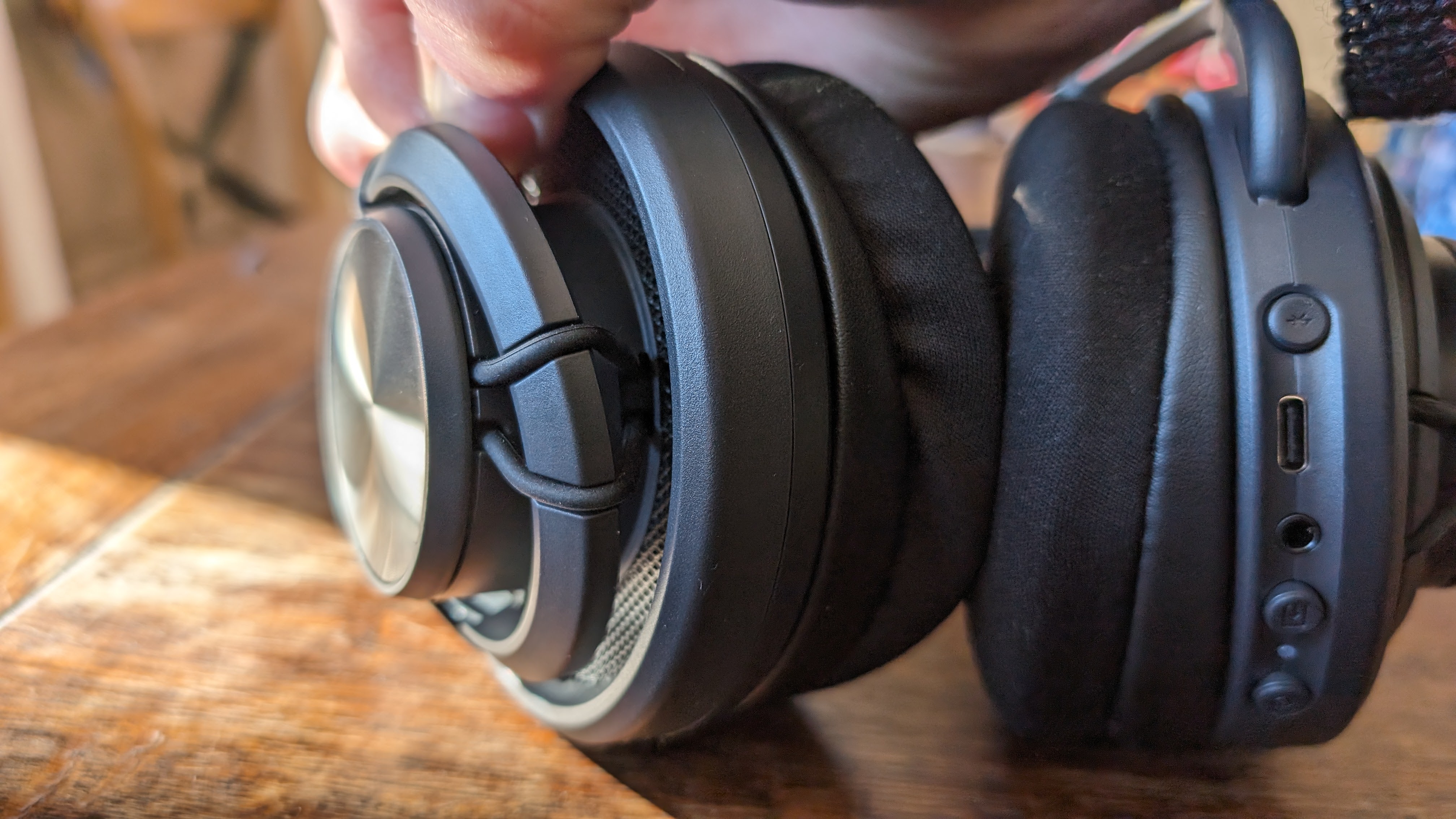
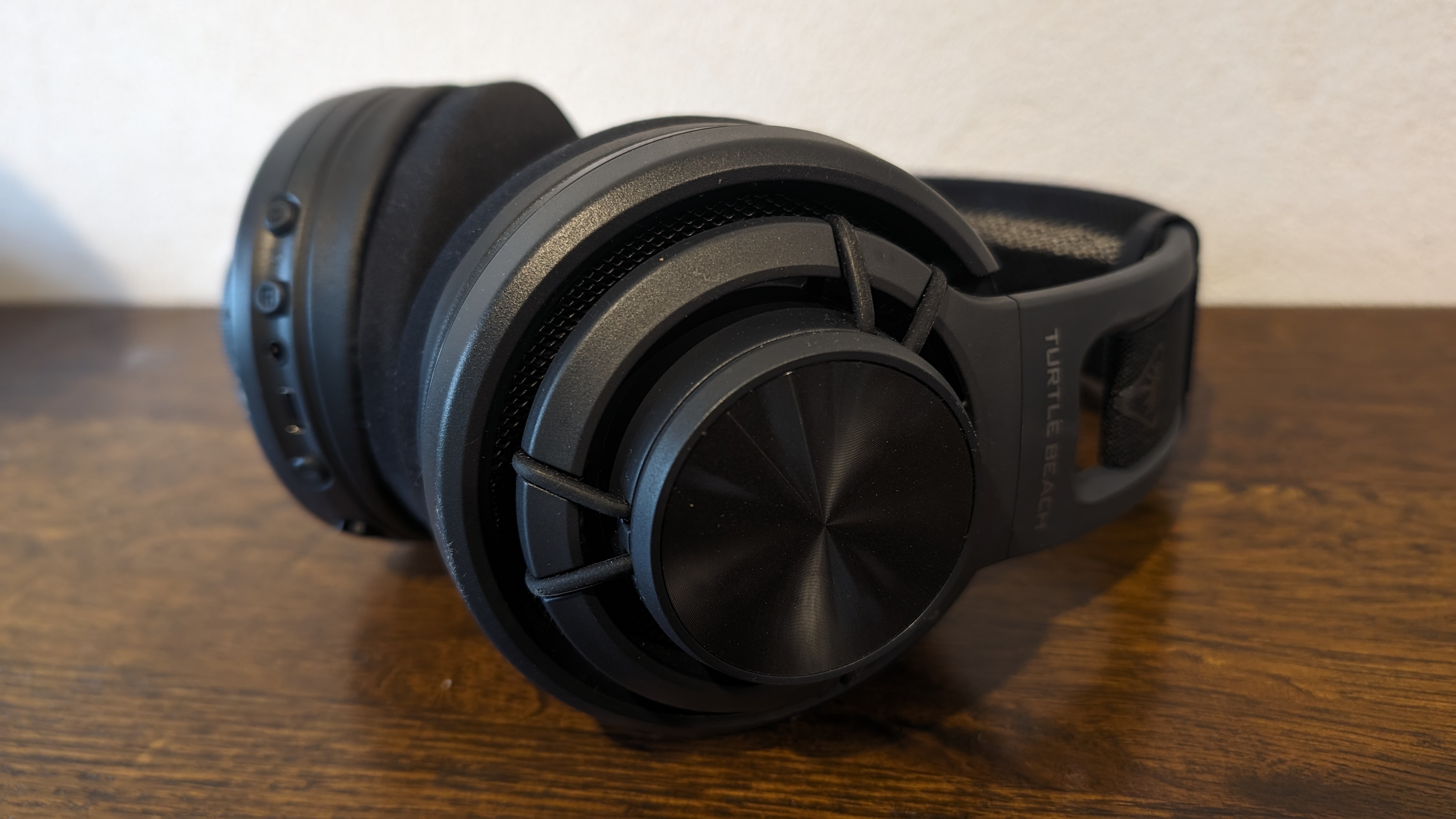
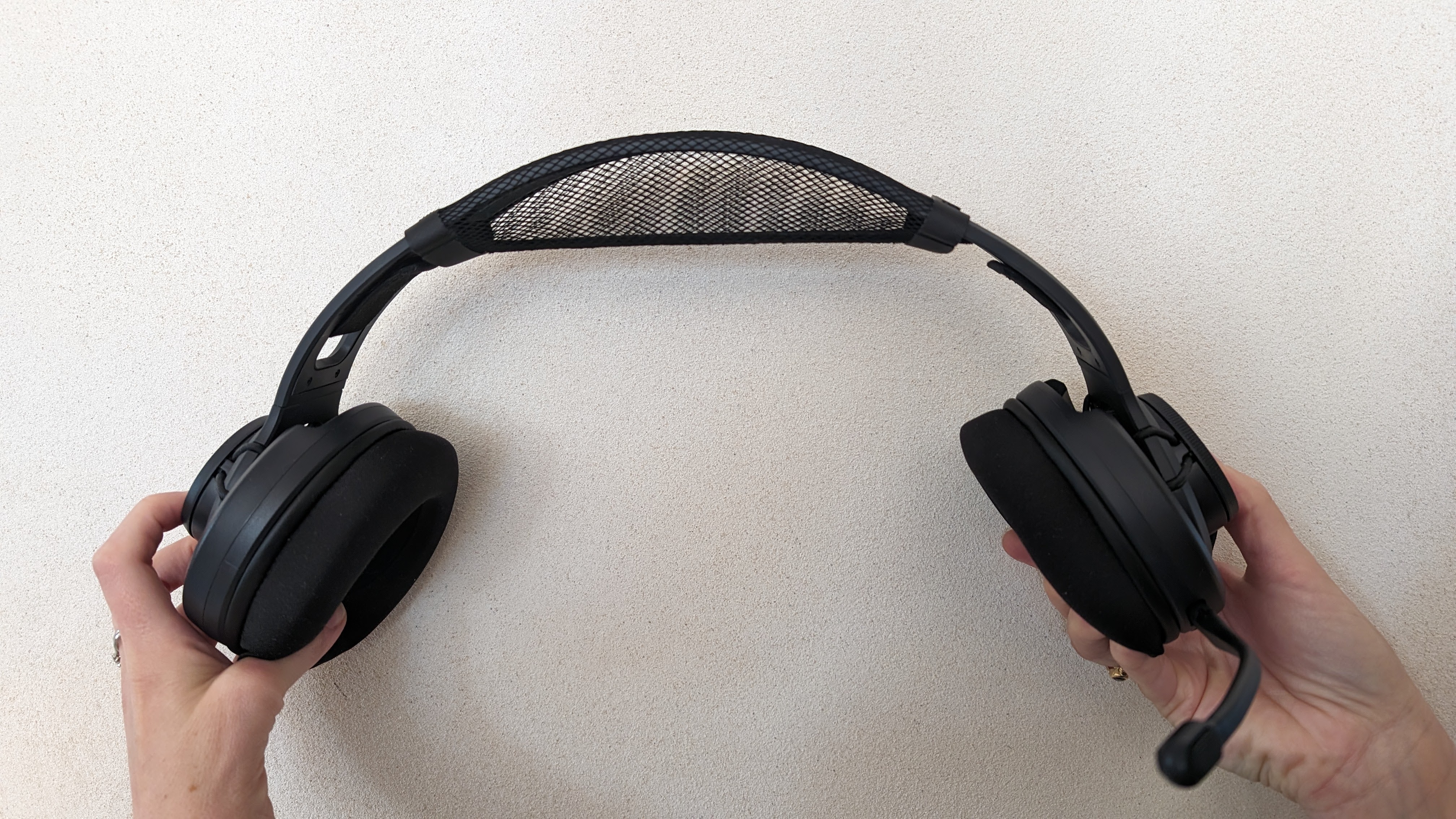
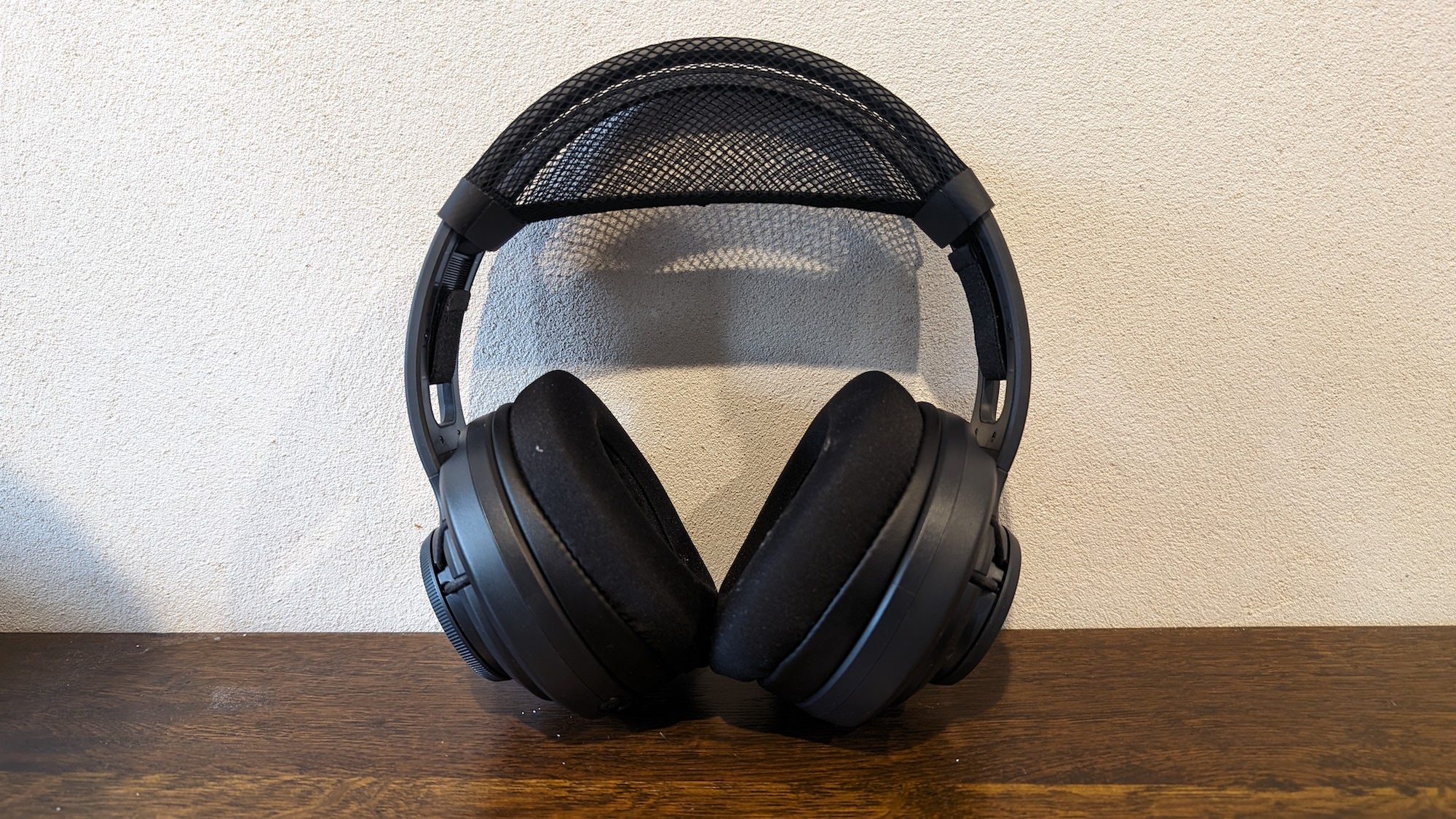
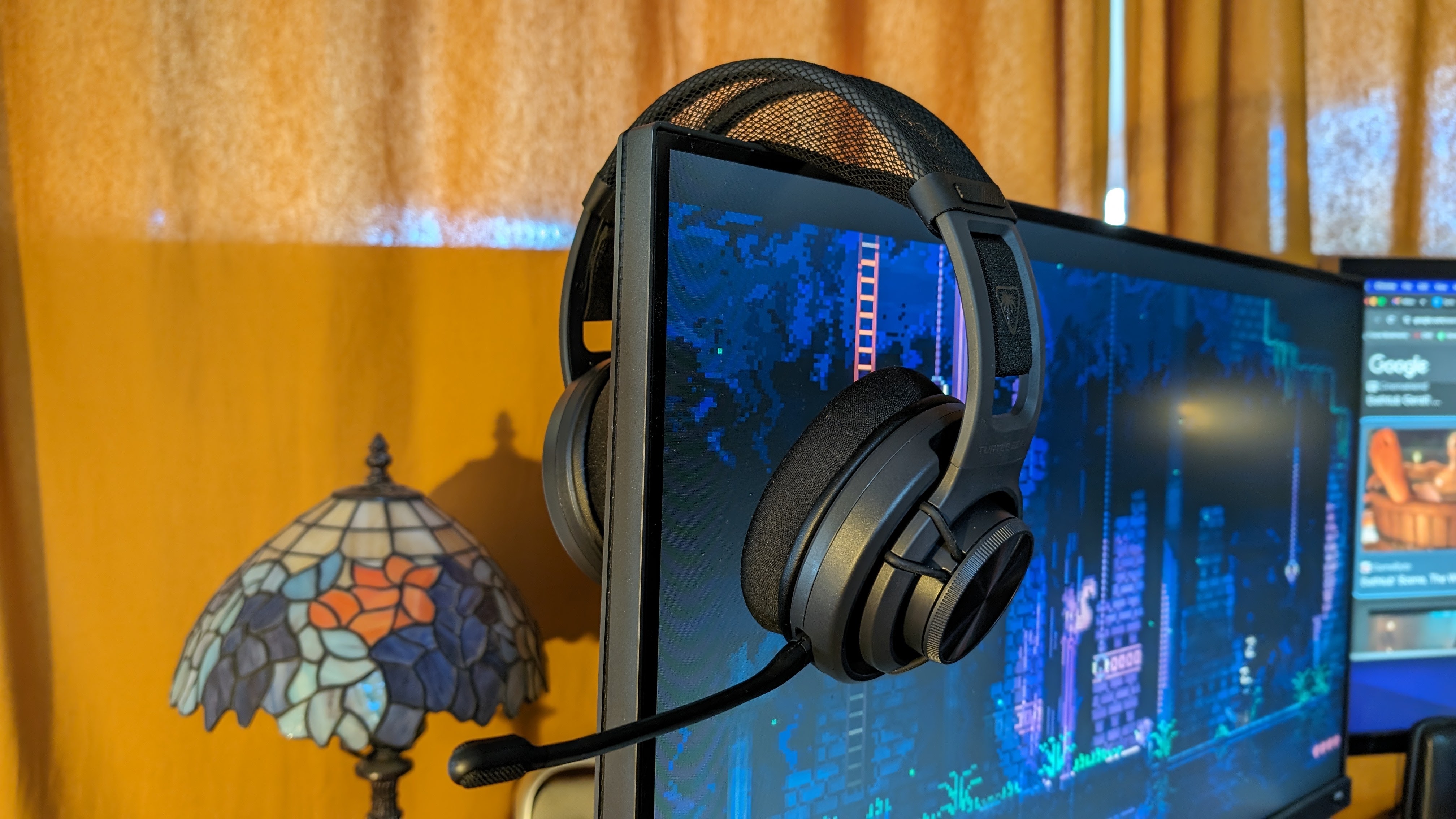
Specifications
Reasons to buy
Reasons to avoid
✅ You're after an expansive soundscape: The open-back operating principle doesn't get in the way of the game audio in the same way as a standard closed-back system does; making it feel far more natural.
✅ You prioritize comfort: It's not the lightest headset around, but the floating ear cup design and headband make it feel lighter than it is.
❌ You share your gaming environment: The single issue with open-back headsets is that they will inevitably let sound out, bothering others, and let sound in, bothering you.
Turtle Beach is making a rare appearance in our headset guide, but the rather niche Atlas Air has found its place. It is both a great-sounding wireless headset and a surprisingly affordable one, too. That's not something you might normally say about a set of cans with such audiophile leanings, but the Turtle Beach Atlas Air is our pick for best open-back wireless gaming headset.
The open-back operating principle is one normally associated with high-end, audiophile headphones; those designed to be worn in some sort of audio isolation chamber where it's just you, alone, with the sound from your cans. And there's good reason for this: open-back headphones deliver the most natural sound you will find from two speakers strapped to your ears, but they are inherently leaky compared with the standard closed-back principle most gaming headsets use.
That makes open-back not the most traditionally attractive for a PC gaming headset, especially if you're taking esports as the pinnacle of gaming, though neither for those gaming at home. You'd never wear a headset in a tournament where the outside world can impinge so much upon the audio coming into your ears, and equally not in a place where other people might be sharing the same space and don't want to hear the faintly muffled explosions and expletives leaking out of your headset.
But if you want the most immersive experience in an open-world game or atmospheric horror, then open-back is where it's at. And the Atlas Air, while being externally a rather underwhelming affair, has got it where it counts. The drivers deliver clear, natural sound, but you will also hear more environmental details, too.
At low volumes, you might experience some external aural seepage coming in, but when you're in your gaming quiet place the experience can be transformative. You'll hear things in familiar games which you'll either have never heard before or you will think the sound is actually coming from the room around you.
In a headset that doesn't cost any more than a standard wireless gaming headset, that level of audio quality is impressive. And a wireless open-back set is a rarity indeed.
The Atlas Air is an unassuming thing, however, so if you're at all bothered by looks then maybe you might be slightly put off. But the lack of bells and whistles adds to the design of the headset with an obvious preference for a light feel and serious long-term comfort while playing.
Read our full Turtle Beach Atlas Air review.
Also tested
Razer Barracuda X Chroma
Featuring snazzy RGB lighting and a versatile, comfortable form factor, this headset is hardly all style and no substance. Low latency 7.1 spatial audio and an excellent mic make this a flashy contender. However, some functionality is locked behind software, and there's no option for a wired connection either.
PC Gamer score: 82%
Read our full Razer Barracuda X Chroma review.
OXS Storm G2
A solid budget gaming headset with a nice design, great battery life and decent mic, this is let down by mediocre sound.
PC Gamer score: 70%
Read our full OXS Storm G2 review.
Alienware Pro Wireless
This pair of headphones is let down by its high cost, poor microphone, and strangely unbalanced volume. It does feel nice to use though, and has pretty good sound.
PC Gamer score: 63%
Read our full Alienware Pro Wireless review.
Corsair Virtuoso Max
Corsair's Virtuoso Max is fitting of the name, with great battery life and sound but has the price tag to match. And, at over $300, we hoped it would offer a little more.
PC Gamer score: 74%
Read our full Corsair Virtuoso Max review.
Razer Kraken V4
An excellent headset for the high-end of the midrange. Razer Synapse still needs work, but the V4 is overall high-quality and worth the price.
PC Gamer score: 85%
Read our full Razer Kraken V4 review.
Razer Kraken V4 Pro
While the Razer Kraken V4 Pro rocks a premium price tag, it does just about everything right to justify its price. Yes, there are other headsets out there with RGB lighting and haptic feedback, but few of them match the quality, immersion, and awe-inspiring design of the Razer Kraken V4 Pro.
PC Gamer score: 85%
Read our full Razer Kraken V4 Pro review.
AceZone A-Spire Wireless
The AceZone A-Spire Wireless is the definitive version and a must-have for those invested in esports. However, a high price, connection issues, and super-niche use case means it might not be for everyone.
PC Gamer score: 75%
Read our full AceZone A-Spire Wireless review.
Asus ROG Delta II
The ROG Delta II is a great update to what was already a good gaming headset. The impressive battery life, tri-mode connectivity, and wonderful comfort are really hard to hate.
PC Gamer score: 85%
Read our full Asus ROG Delta II review.
Lexip Sasuke Revenge
With looks only a dedicated Naruto fan could love and ergonomics that not even a dedicated Naruto fan could love, the Sasuke Revenge headset has to be a hard no.
PC Gamer score: 45%
Read our full Lexip Sasuke Revenge review.
JBL Quantum TWS
The JBL Quantum TWS are a well-balanced, well-designed set of wireless earbuds, and their versatility and ease-of-use make them a fantastic set of earbuds for gaming.
PC Gamer score: 87%
Read our full JBL Quantum TWS review.
SteelSeries Arctis Nova 5X
A clear and detailed sound in combination with a comfortable build and easy-switch connections makes this headset a delight for everyday use. That being said, the slight lack of low-end bass does give pause for thought.
PC Gamer score: 82%
Read our full SteelSeries Arctis Nova 5X Wireless review.
HyperX Cloud III Wireless
While we adore the HyperX Cloud Alpha Wireless, the Cloud III never came close enough to win our recommendation. They're decent enough, though you can buy better for the money.
PC Gamer score: 65%
Read our full HyperX Cloud III Wireless review.
Sony InZone H5
Despite being made by Sony, the InZone H5 is most at home connected to a gaming PC. Lovely sound and comfort are backed up by decent software and a reasonable price. Pity about the microphone and the overly plastic feel to it all.
PC Gamer score: 80%
Read our full Sony InZone H5 review.
Logitech Pro X 2 Lightspeed
Logitech has made a good effort to do something different with the Pro X 2 Lightspeed cans, but it's so expensive it makes it a very tough recommendation. Our favorite wireless gaming headset is quite a bit cheaper.
PC Gamer score: 72%
Read our full Logitech Pro X 2 Lightspeed review.
Xbox Wireless Headset
The Xbox Wireless Headset hits all the good points without going too flashy. Its minimal design and solid stereo sound make it a great headset, especially at that price. The fact there's no option to connect via 3.5mm jack, and that the Virtual Surround Sound costs extra, hold it back from being top-tier, however.
PC Gamer score: 87%
Read our full Xbox Wireless Headset review.
Logitech G Astro A50 X Lightspeed
Rich-sounding, comfortable, and with a great mic, the Astro A50 X is meant to be for gamers who use PCs and consoles. The result is an overly complex system that costs too much, unfortunately.
PC Gamer score: 80%
Read our full Logitech G Astro A50 X review.
Logitech G FITS
A pair of really decent earbuds are the Logitech G Fits. The audio is great and dual mode gives it an extra level of flexibility for fast switching between devices. They're a little invasive in the way they shape to your ear, but it means they're secure and really comfortable. The only issues come in the fact you can't store the dongle in the case, and there's no ANC.
PC Gamer score: 83%
Read our full Logitech G FITS review.
Turtle Beach Stealth Pro
While Turtle Beach made a great bat for the crown here with the Stealth Pro, a lot of the features look good on paper alone. It comes with some nice noise canceling, but it's not the most comfortable headband, or audio quality for that matter.
PC Gamer score: 60%
Read our full Turtle Beach Stealth Pro review.
Razer BlackShark V2 Pro 2023 edition
While Razer is still manufacturing the original V2 Pro, and selling it for considerably less, this 2023 update is less tempting. But this is still a great-sounding wireless gaming headset, with a greater battery life, and now a genuinely good microphone, too.
PC Gamer score: 83%
Read our full Razer BlackShark V2 Pro 2023 edition review.
How we test wireless gaming headsets
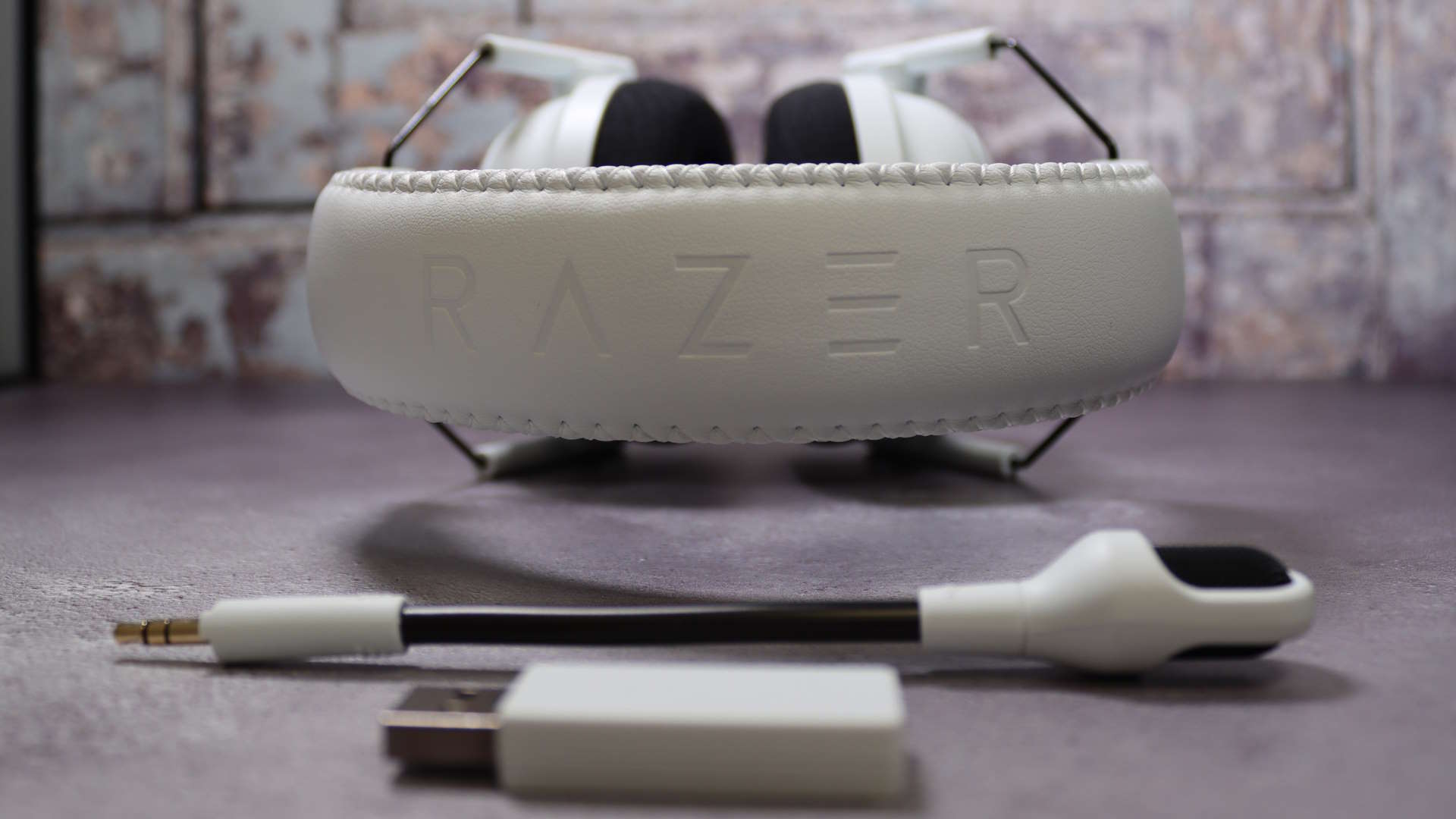
How does PC Gamer test wireless gaming headsets?
Many of the qualities you’re looking for from a wireless headset are the same you’d hope to find in any audio equipment—tone, build quality, and reliability leading the charge. As such, we listen to each review model while playing different genres of games, listening to music, and watching movies with bombastic sound effects and surround mixes—think less Werner Herzog, more Chris Nolan.
There are a few wireless-specific elements we need to test for, too: battery life, charge time, range, and latency. The former is pretty self-explanatory, though, in addition to an ‘everyday use’ battery life test, we also run the headset at full volume to discover how quickly the charge drains under those conditions. To ascertain charge time, we… well, we charge the headsets and note how long it takes.
Range and latency are trickier to test scientifically. However, having a pleasant walk around the house gives a good indication of range, and latency ultimately comes down to perception. After several days of use, we’re in an excellent place to make the call on a headset with all that taken into account.
Wireless gaming headset FAQ

Are wireless headphones okay for gaming?
There are some for whom nanoseconds do matter, or at least are perceived to, and they may wish to steer clear of wireless headphones, but for the majority of us, there is little problem with the best wireless gaming headsets today.
Unless you connect via Bluetooth, however. That is the laggiest of current wireless connections, with a 2.4 GHz wireless interface able to deliver audio performance that won't get in the way of your game.
Are wireless gaming headsets more expensive?
The sad fact is that you are likely to be paying a premium for a wireless version of any product. You have to factor in the extra design, the extra connectivity peripherals (the wireless dongle, etc.), and the fact you now have to have a battery.
Are wireless gaming headsets heavier than wired ones?
Generally, because of that added battery, you will find that a wireless version of a gaming headset will weigh slightly-more than its wired equivalent. Taking an example for our review list, the Razer Blackshark V2 Pro weighs 42 g more than the wired, non-Pro version.
The biggest gaming news, reviews and hardware deals
Keep up to date with the most important stories and the best deals, as picked by the PC Gamer team.

Dave has been gaming since the days of Zaxxon and Lady Bug on the Colecovision, and code books for the Commodore Vic 20 (Death Race 2000!). He built his first gaming PC at the tender age of 16, and finally finished bug-fixing the Cyrix-based system around a year later. When he dropped it out of the window. He first started writing for Official PlayStation Magazine and Xbox World many decades ago, then moved onto PC Format full-time, then PC Gamer, TechRadar, and T3 among others. Now he's back, writing about the nightmarish graphics card market, CPUs with more cores than sense, gaming laptops hotter than the sun, and SSDs more capacious than a Cybertruck.
- Katie WickensHardware Writer
- Jacob RidleyManaging Editor, Hardware
- Hope CorriganHardware Writer
- Jacob FoxHardware Writer
- Kizito Katawonga
